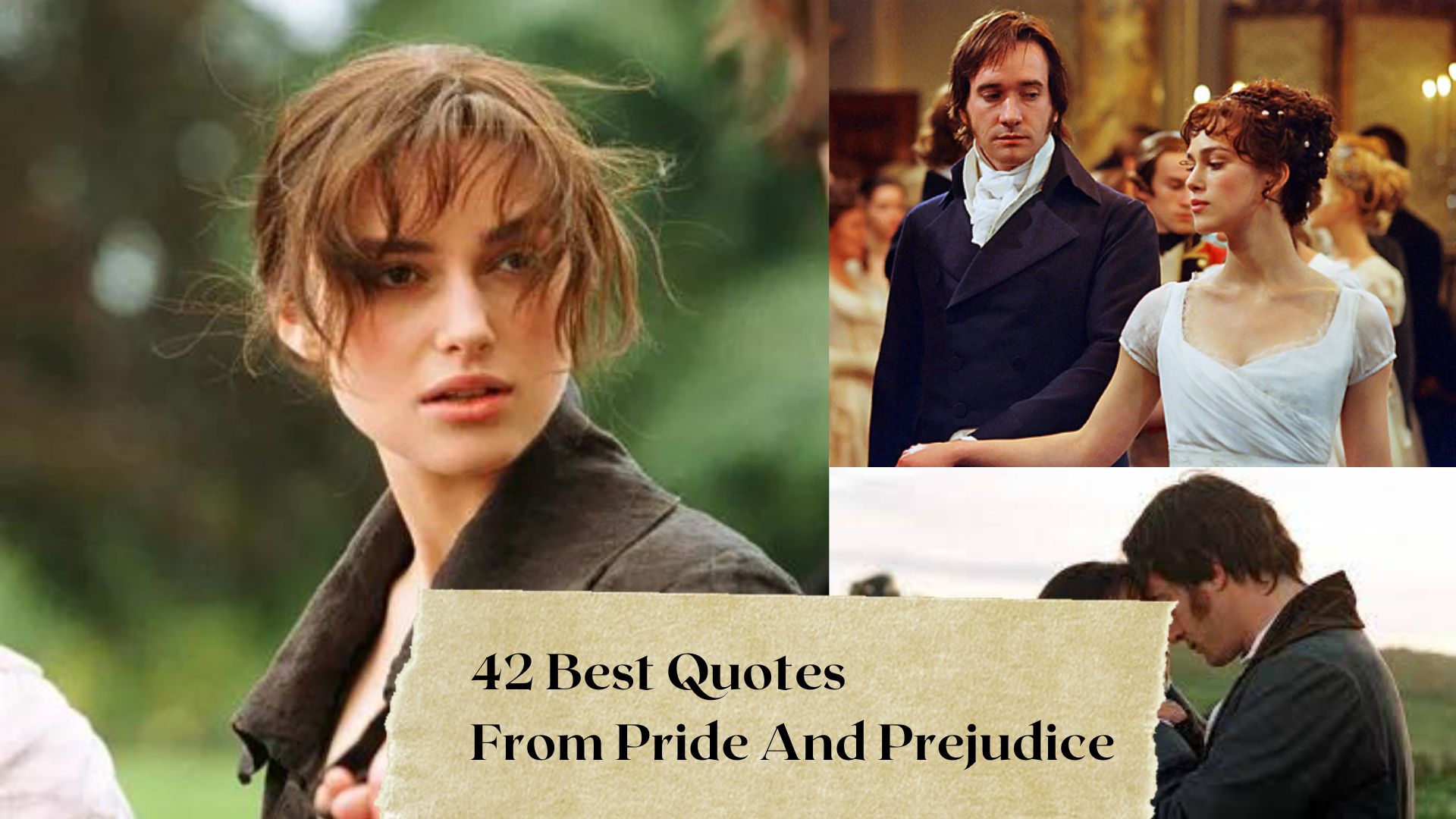Pride & Prejudice is one of the most famous classics, and we happen to be a lover of the enemies-to-lovers trope as well as books, so, we have read, quoted, and annotated this book quite a lot. Although it’s one of the most famous stories of all time, not everyone has read this classic. We understand that because who would want to read a boring classic that is incomprehensible? Yes, we get it. Thank God, we have a movie adaptation!
We watched the movie before reading the book, and the cast, the location, and everything were unexpectedly enchanting. We love the movie, A LOT, but we have to say that there are so many parts that the movie didn’t cover. Most of the iconic lines have been included in the movies, and we are forgetting which ones were our favorite.
However, there are a few lines in the book that is not only our favorite but are so unforgettable, that we can still recite them better than our own names. These are just a few of our favorite quotes from Pride & Prejudice written by the great writer, Jane Austen.
Also Read: NYT Best Sellers 2022: All Best Books To Read Right Now!
It is a truth universally acknowledged, that a single man in possession of a good fortune, must be in want of a wife.
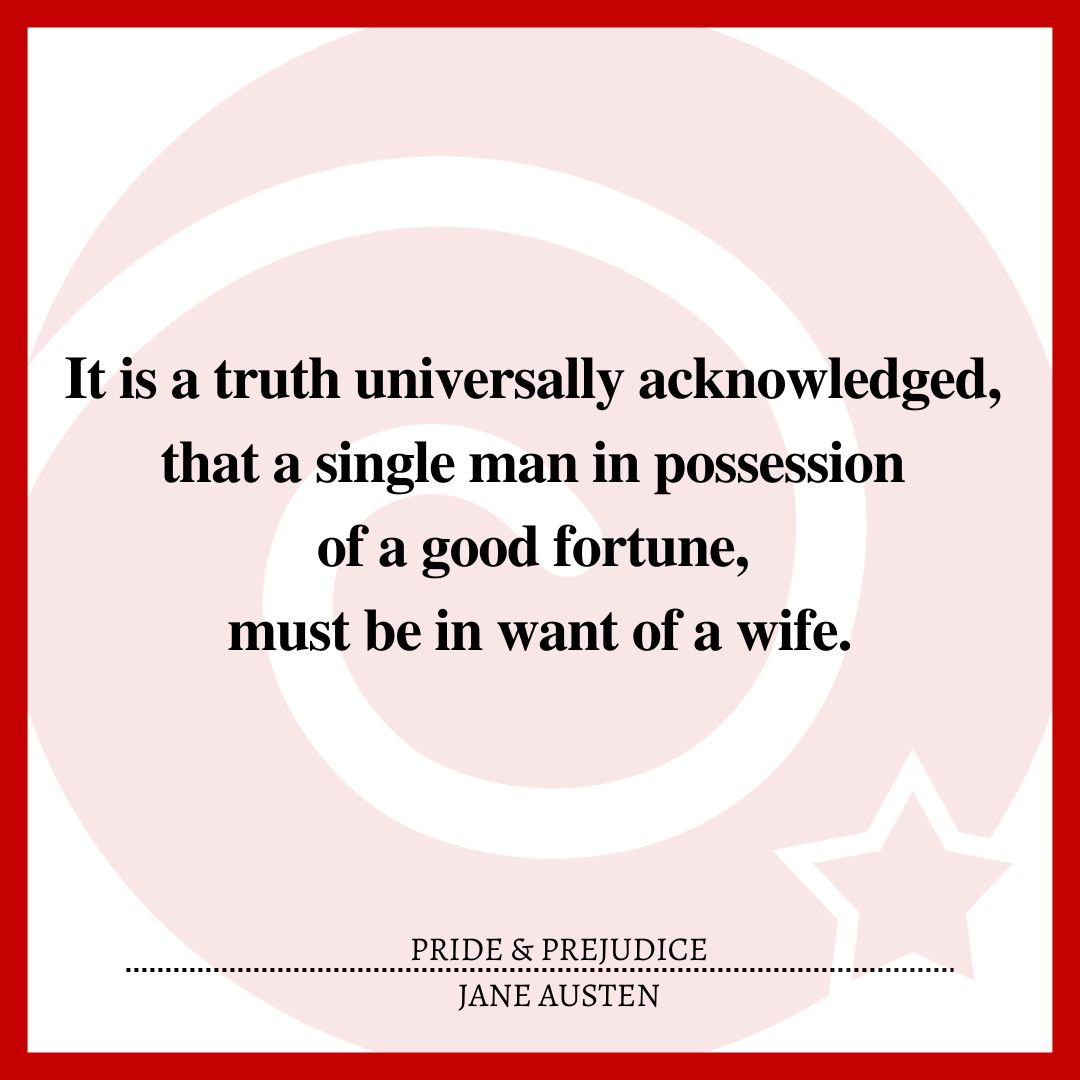
You want to tell me, and I have no objections to hearing it.
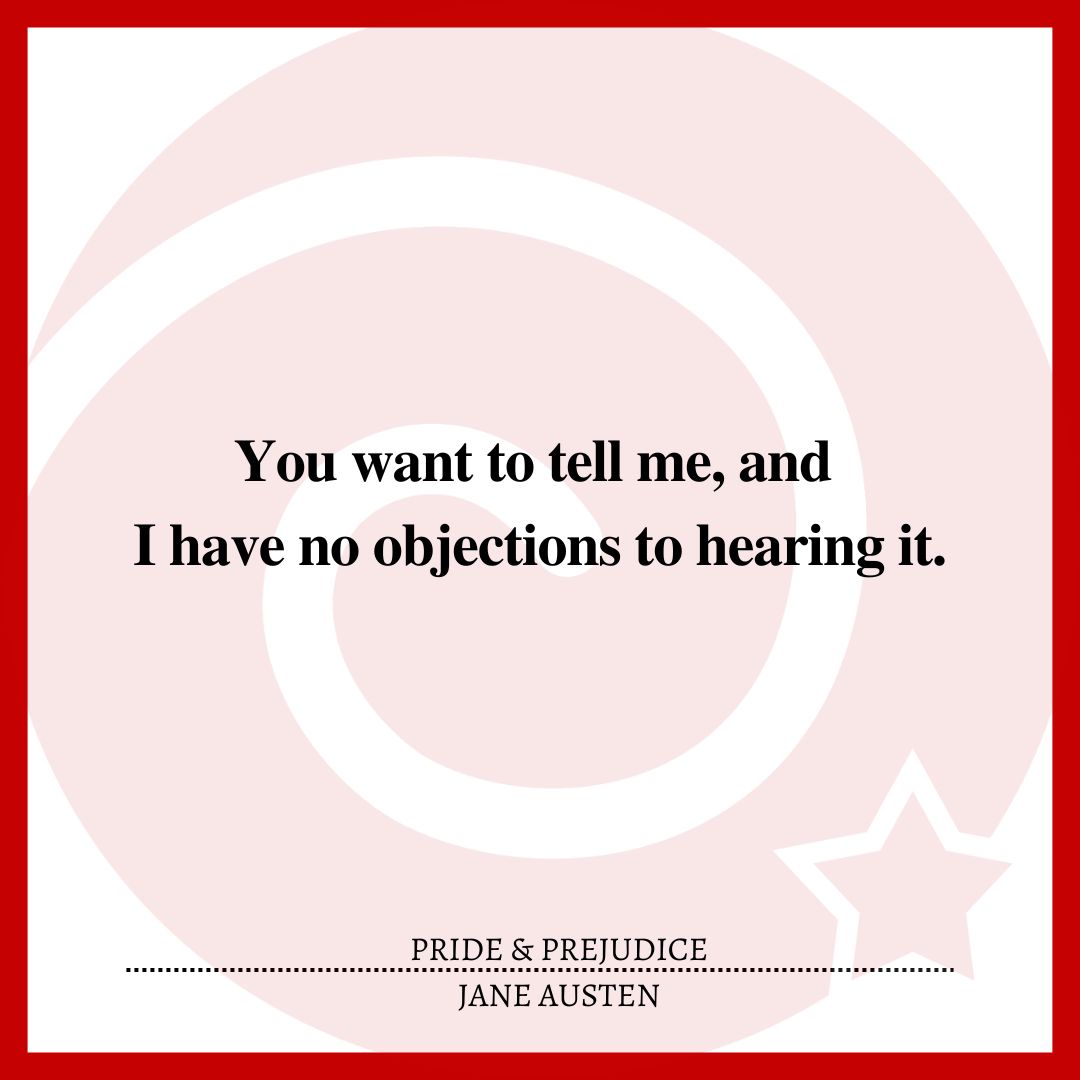
“My dear, you flatter me. I certainly have had my share of beauty, but I do not pretend to be anything extraordinary now. When a woman has five grown-up daughters, she ought to give over thinking of her own beauty.” “In such cases, a woman has not often much beauty to think of.”
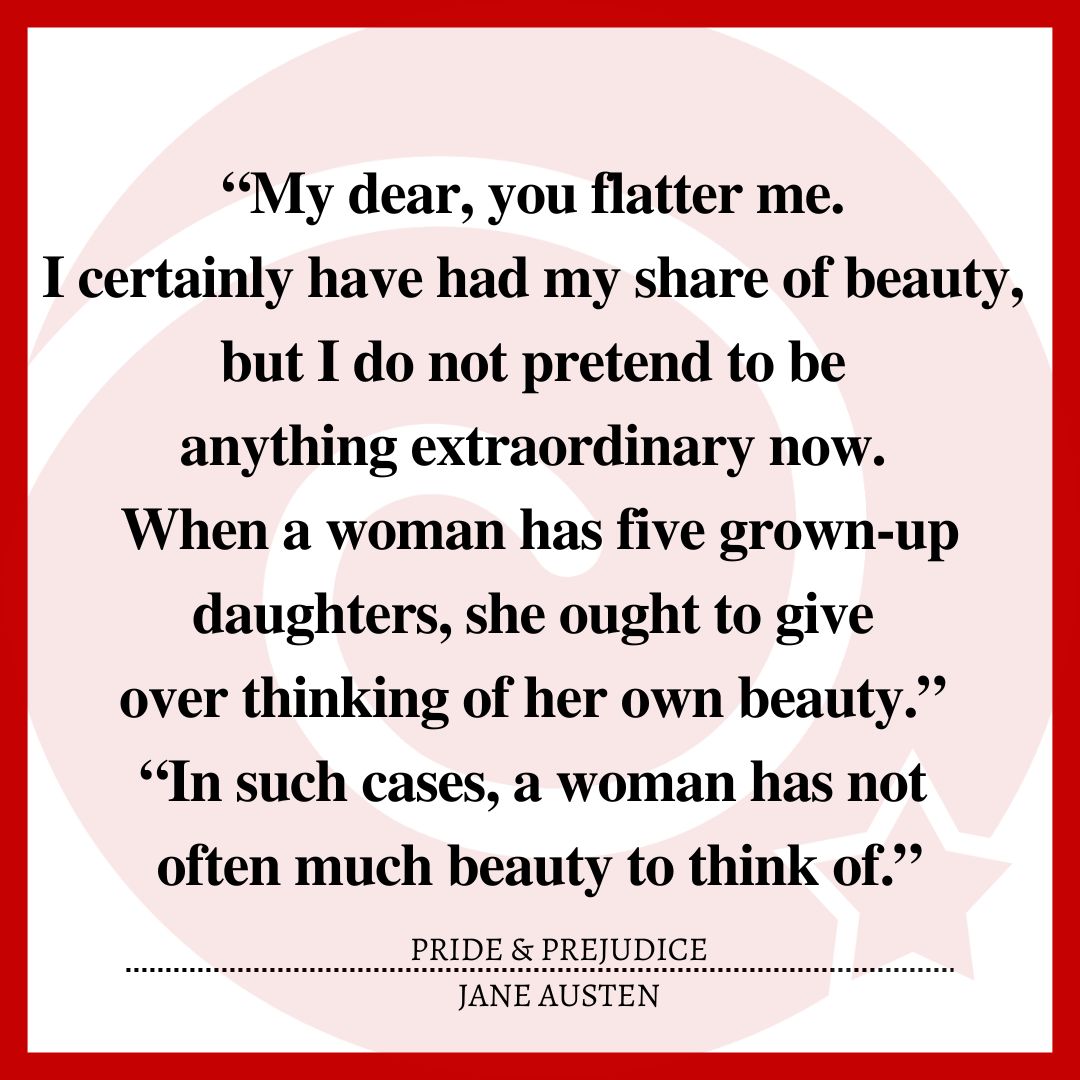
To be fond of dancing was a certain step towards falling in love.
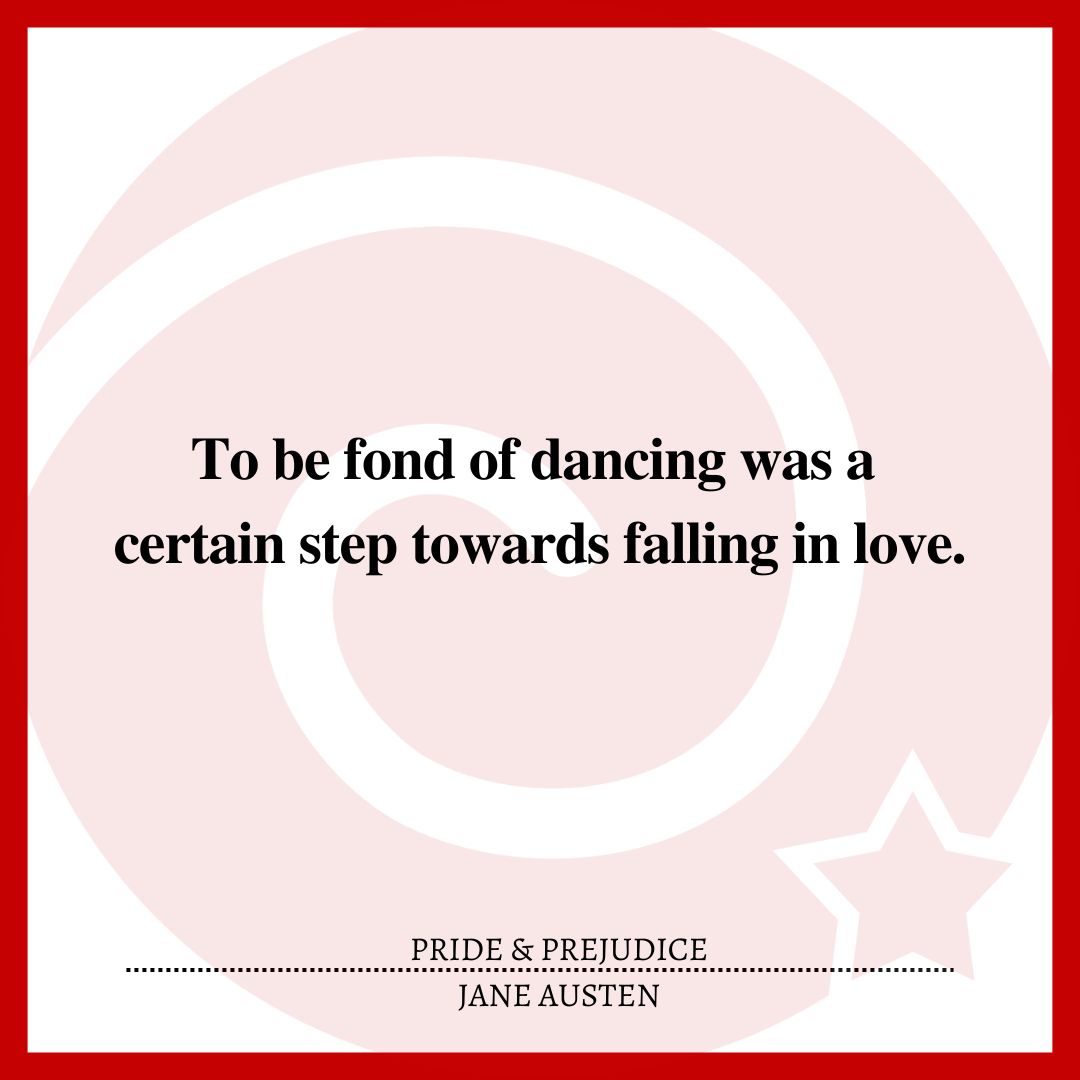
She is tolerable, but not handsome enough to tempt me, I am in no humour at present to give consequence to young ladies who are slighted by other men.
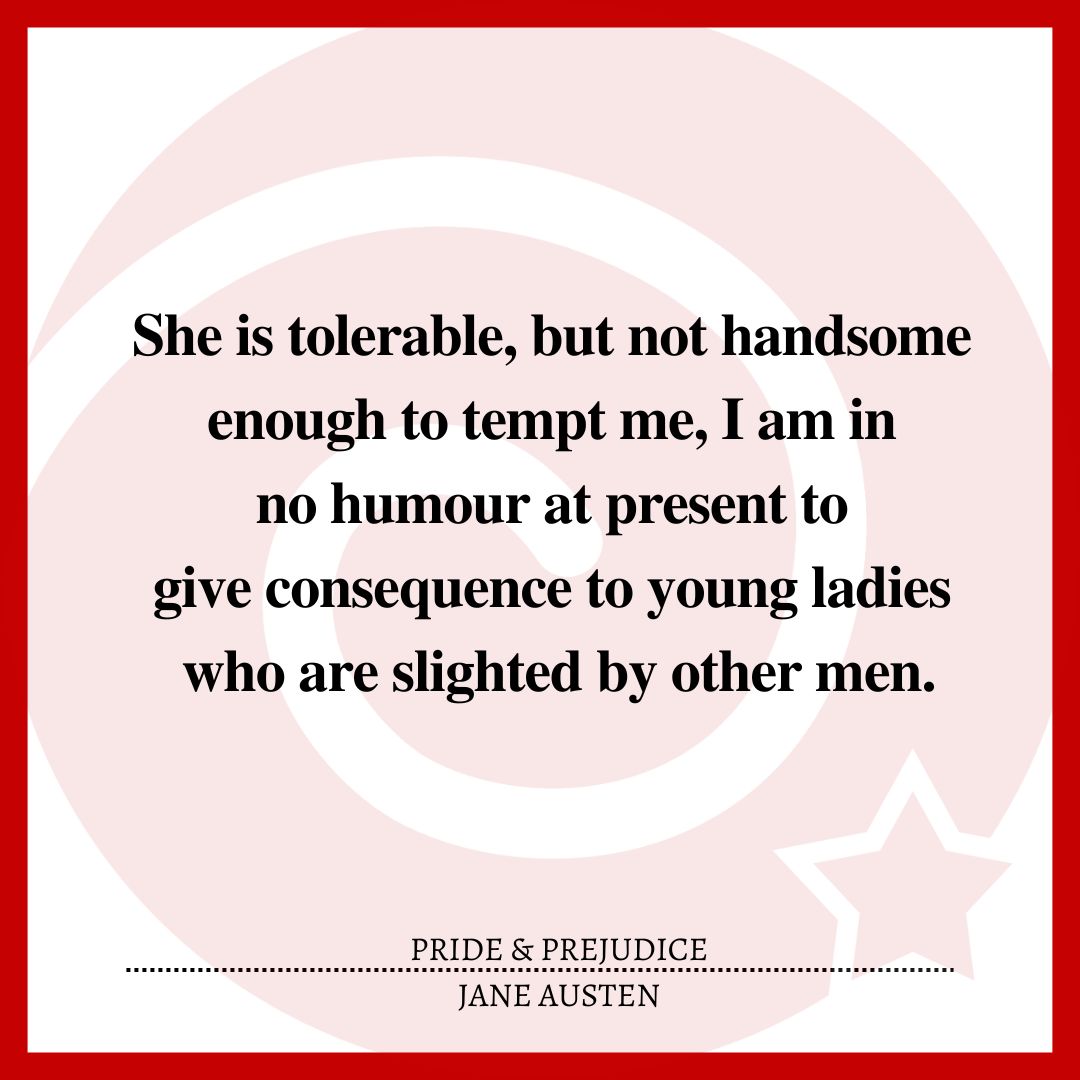
Affectation of candour is common enough – one meets with it everywhere. But to be candid without ostentation or design – to take the good of everybody’s character and make it still better, and say nothing of the bad – belongs to you alone.
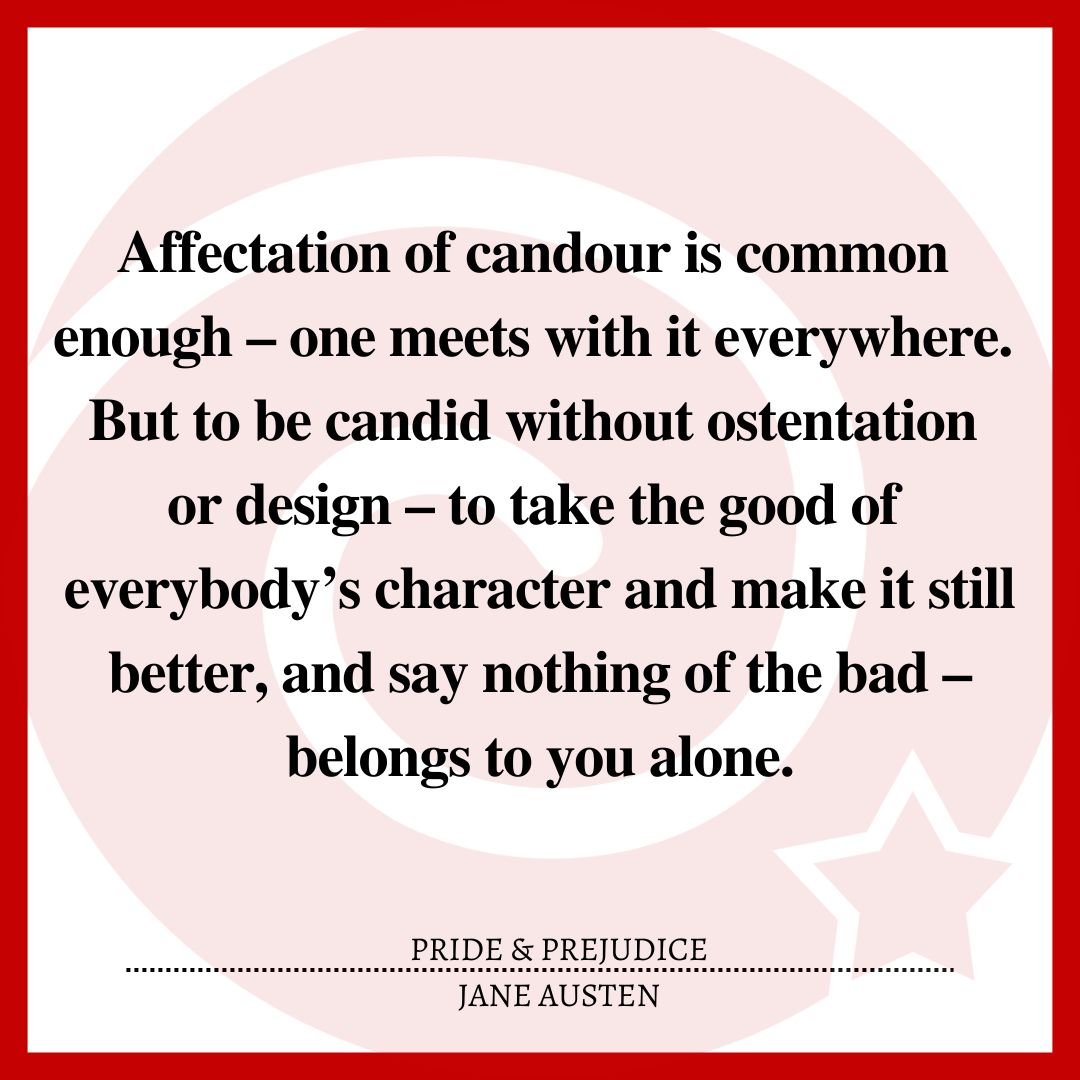
Bingley was by no means deficient, but Darcy was clever. He was at the same time haughty, reserved, and fastidious, and his manners, though well-bred, were not inviting. In that respect his friend had greatly the advantage. Bingley was sure of being liked wherever he appeared, Darcy was continually giving offense.
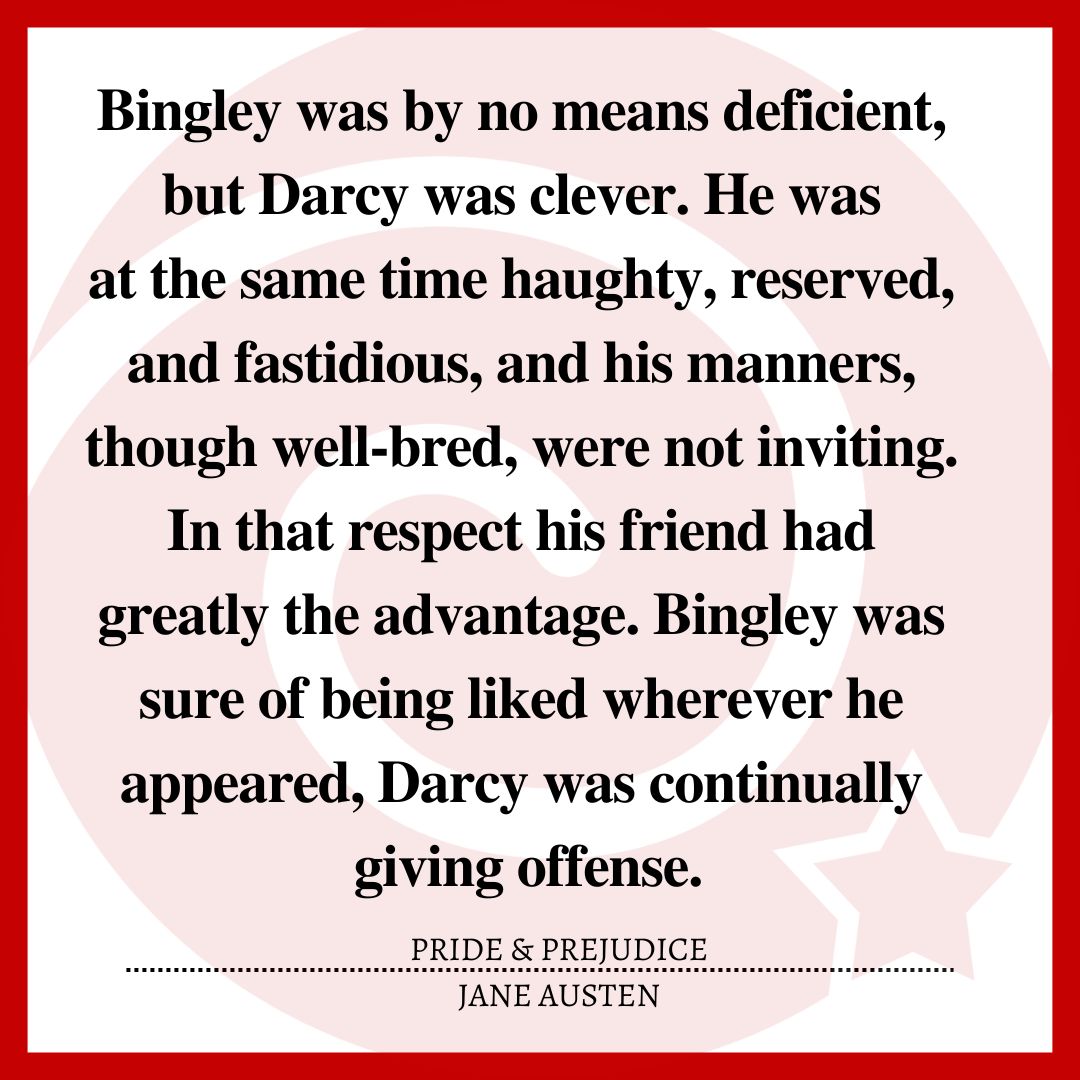
“His pride,” said Miss Lucas, “does not offend me so much as pride often does, because there is an excuse for it. One cannot wonder that so very fine a young man, with family, fortune, everything in his favour, should think highly of himself. If I may so express it, he has a right to be proud.”
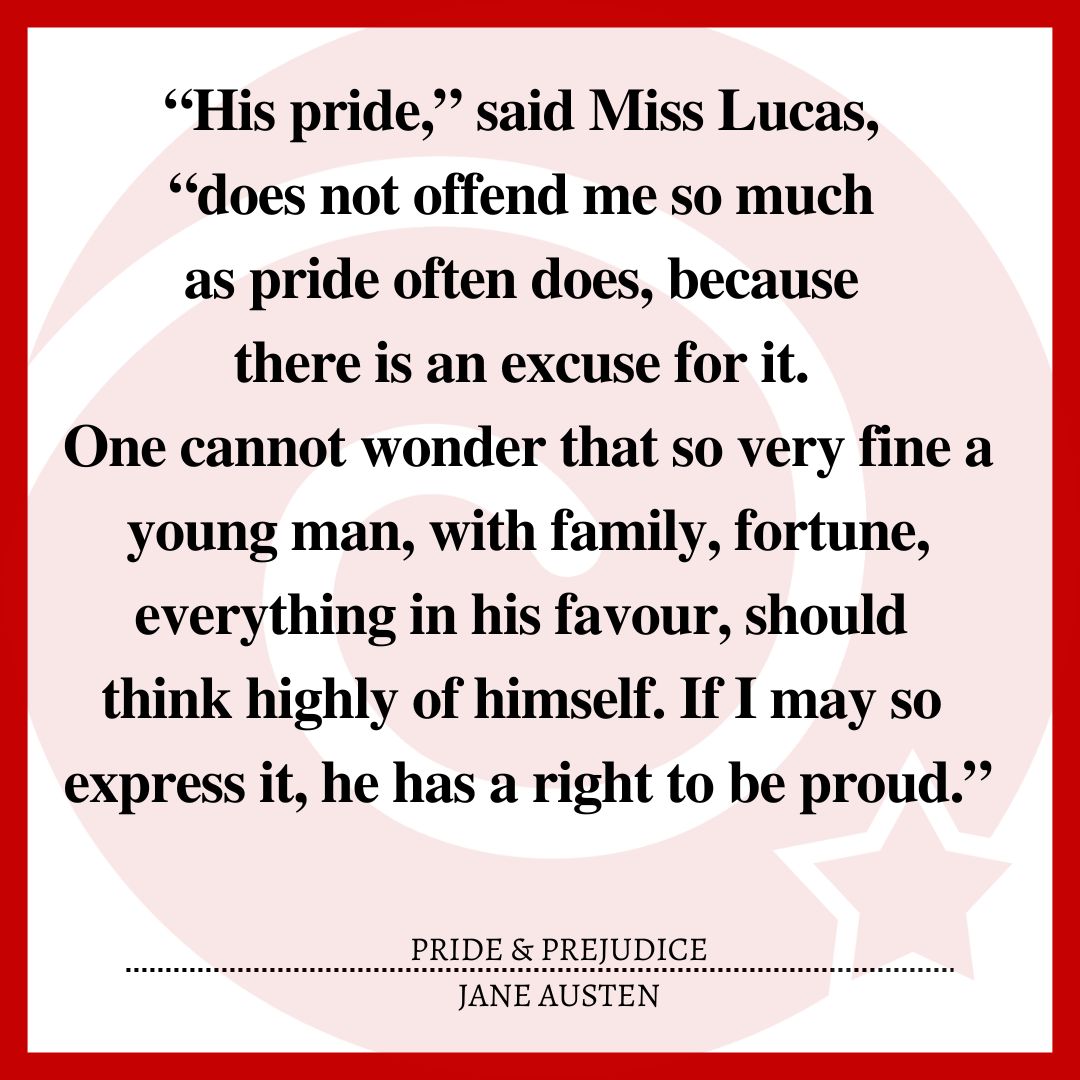
“And I could easily forgive his pride, if he had not mortified mine.”
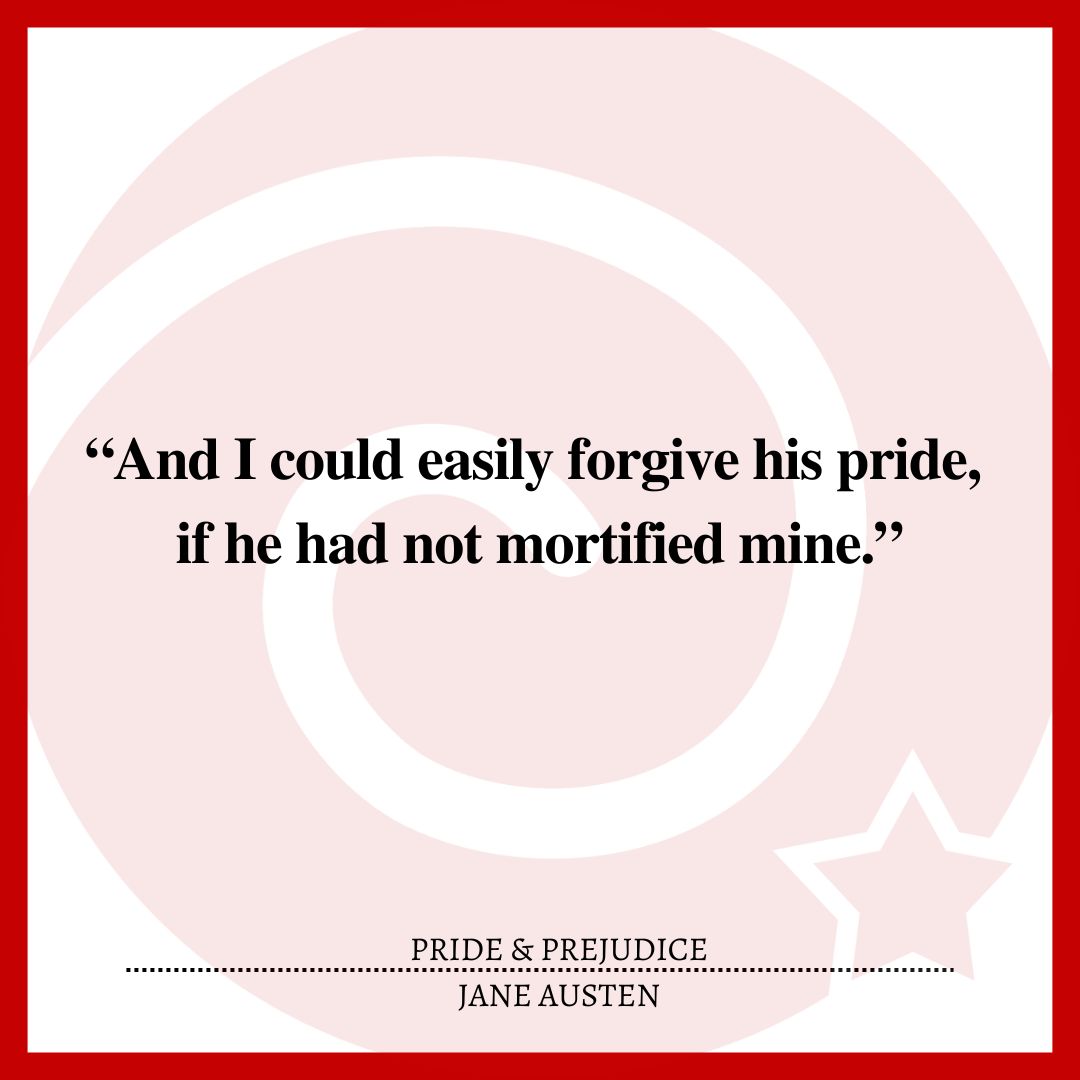
Vanity and pride are different things, though the words are often used synonymously. A person may be proud without being vain. Pride relates more to our opinion of ourselves, vanity to what we would have others think of us.
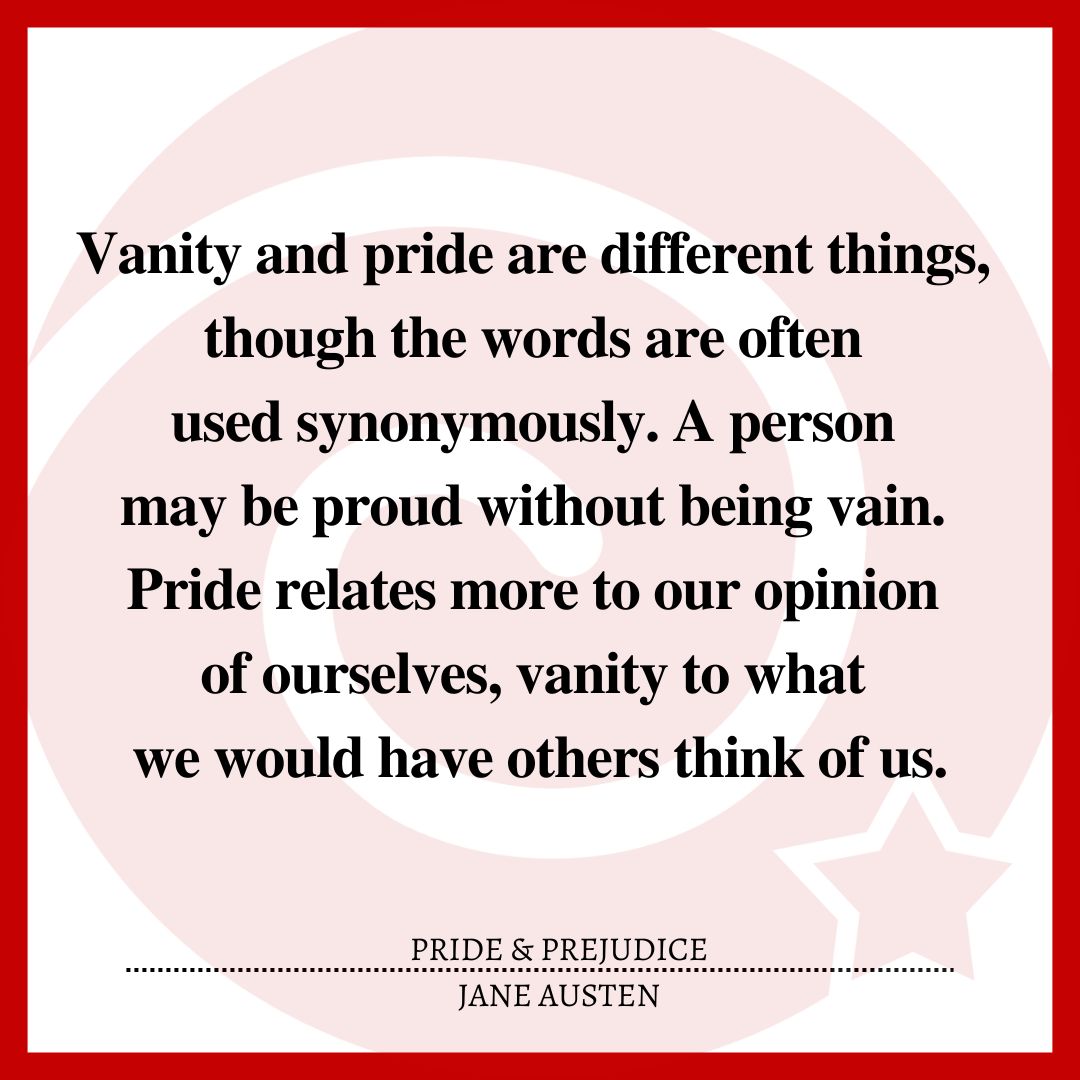
“But if a woman is partial to a man, and does not endeavour to conceal it, he must find it out.” “Perhaps he must, if he sees enough of her.”
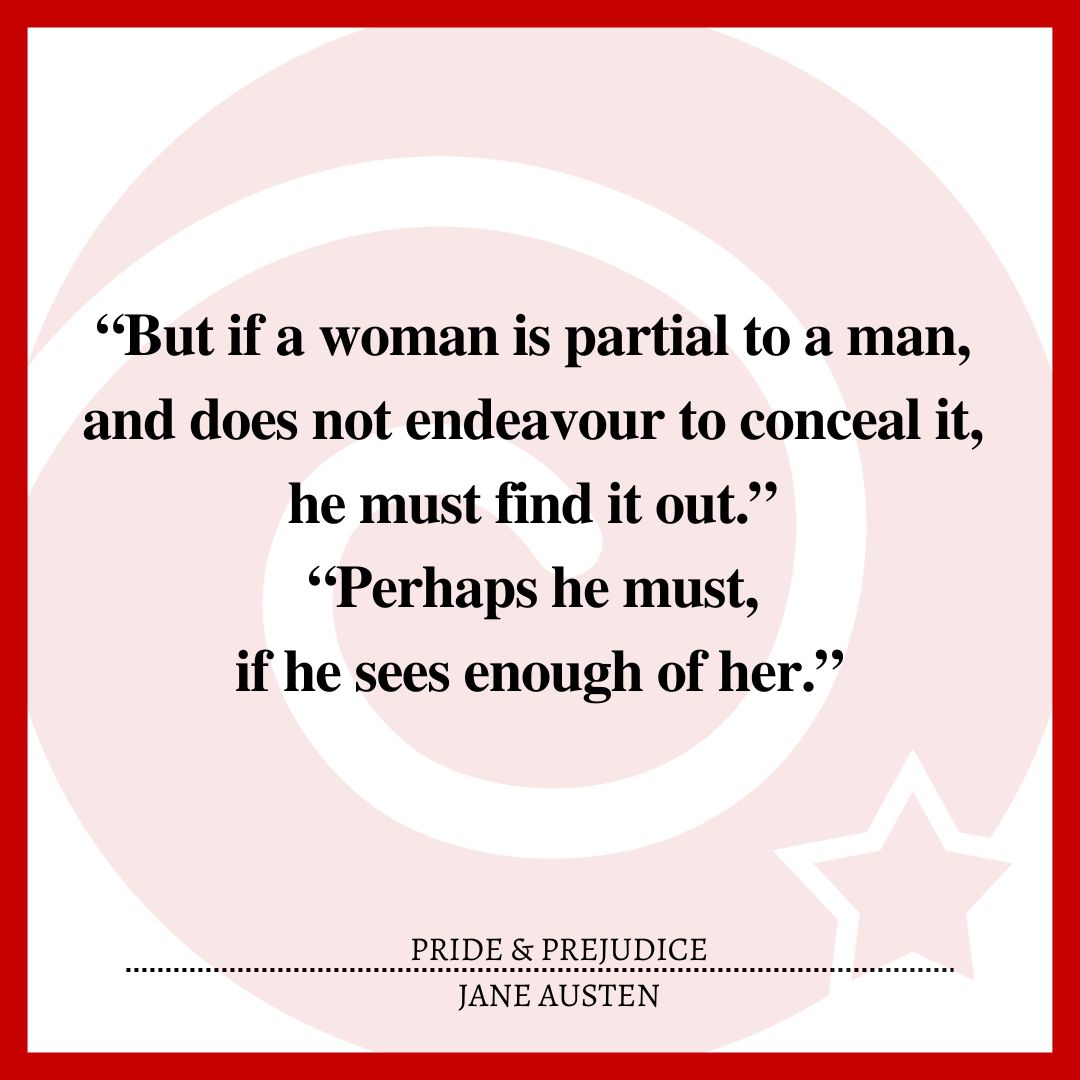
Happiness in marriage is entirely a matter of chance.
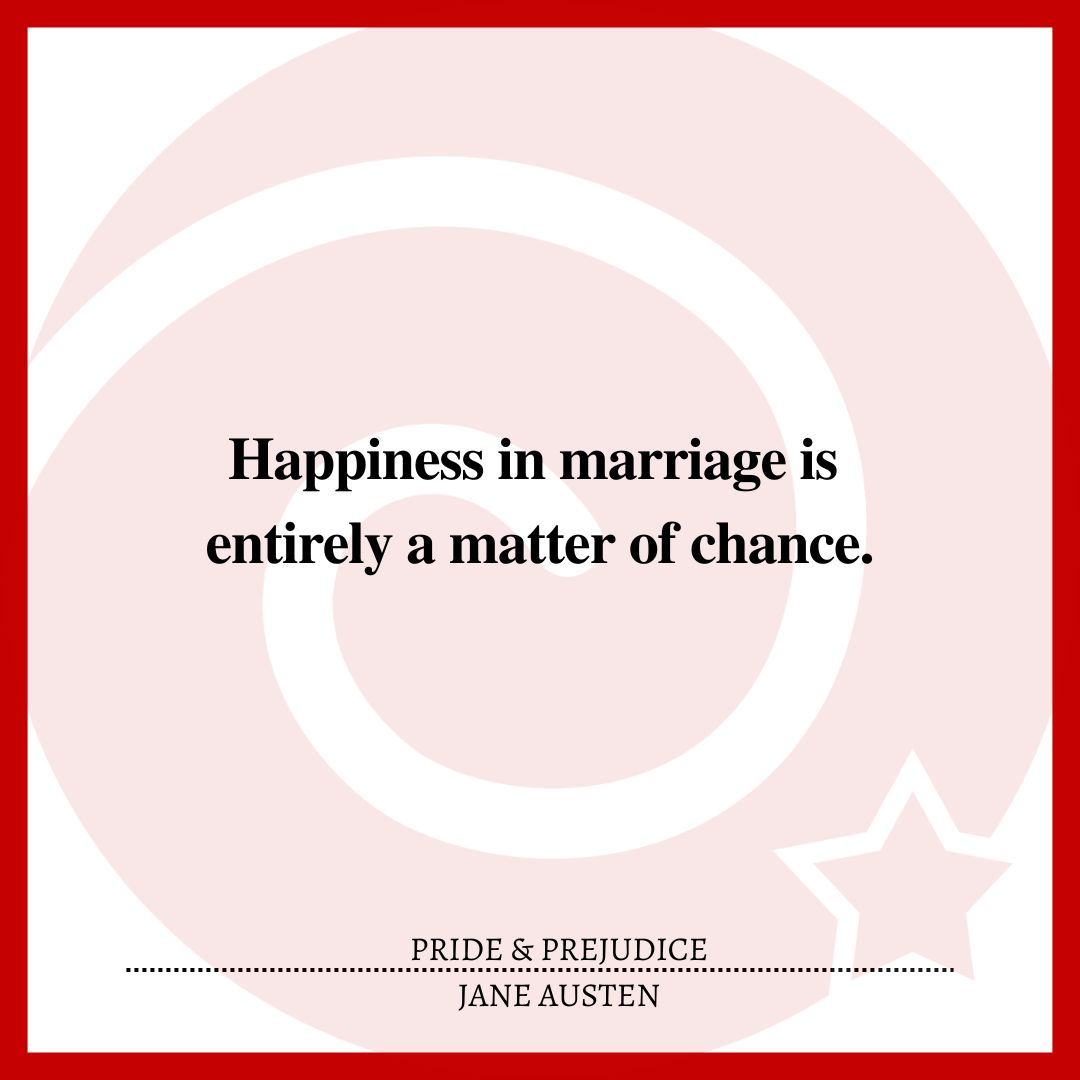
It is better to know as little as possible of the defects of the person with whom you are to pass your life.
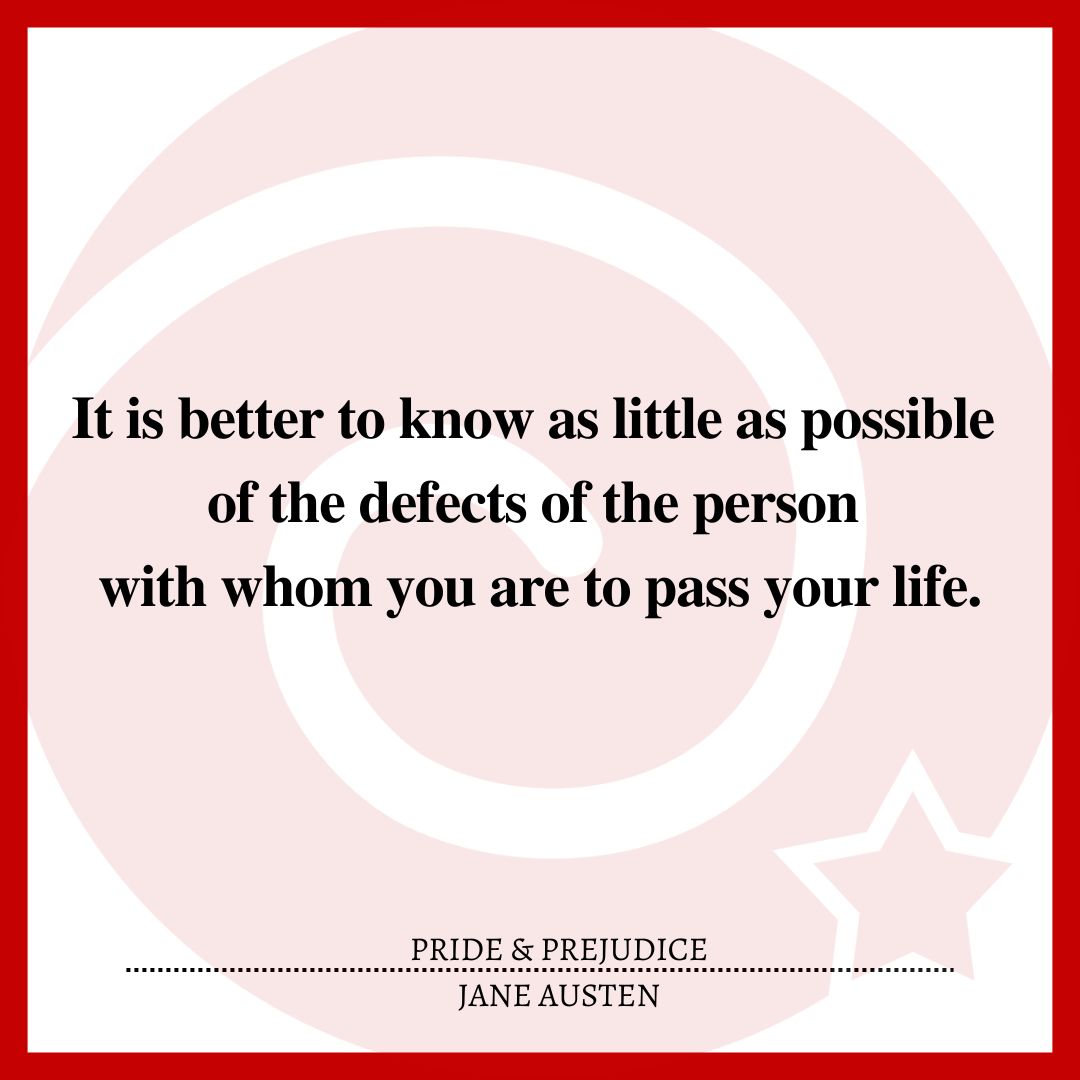
Occupied in observing Mr. Bingley’s attentions to her sister, Elizabeth was far from suspecting that she was herself becoming an object of some interest in the eyes of his friend.
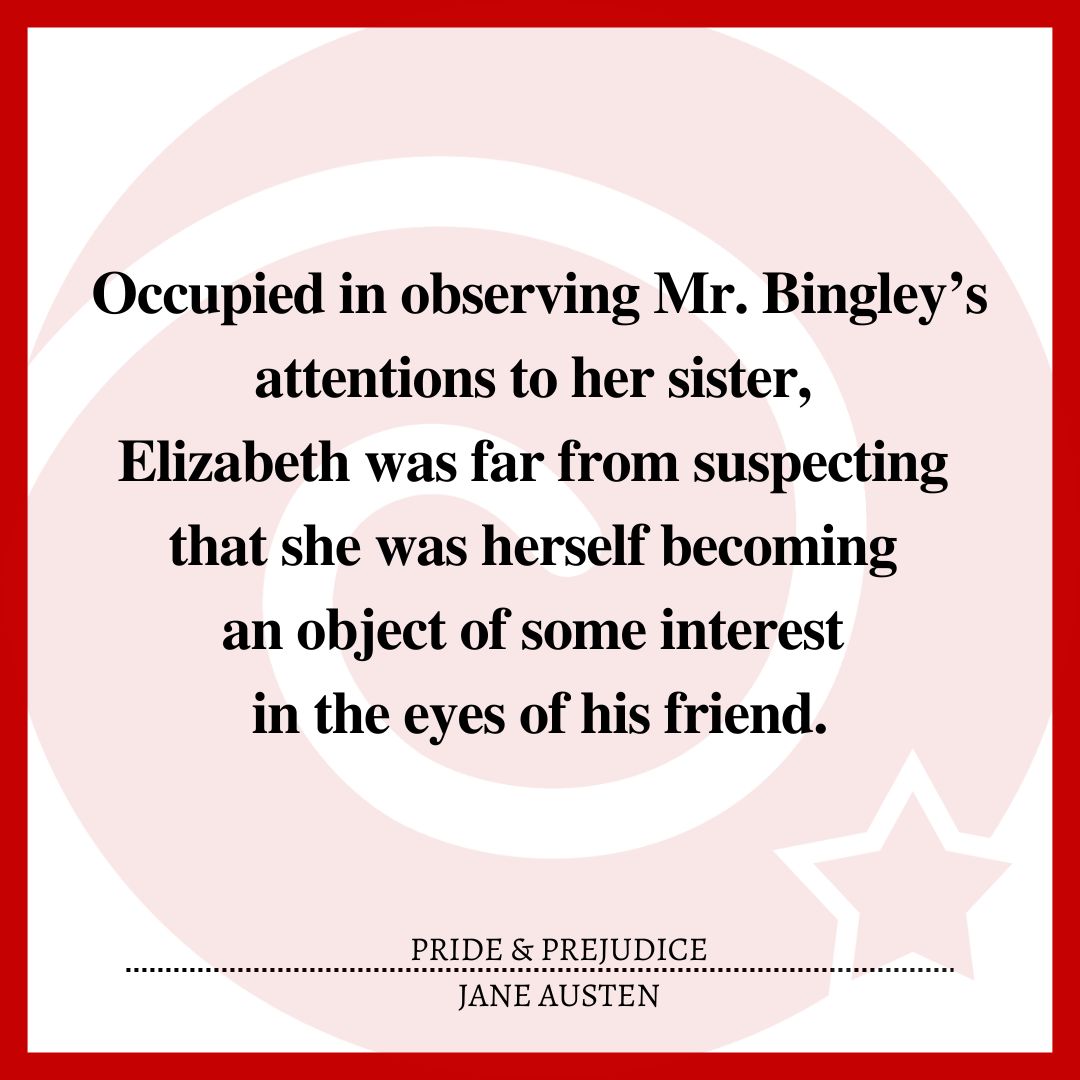
Every savage can dance.
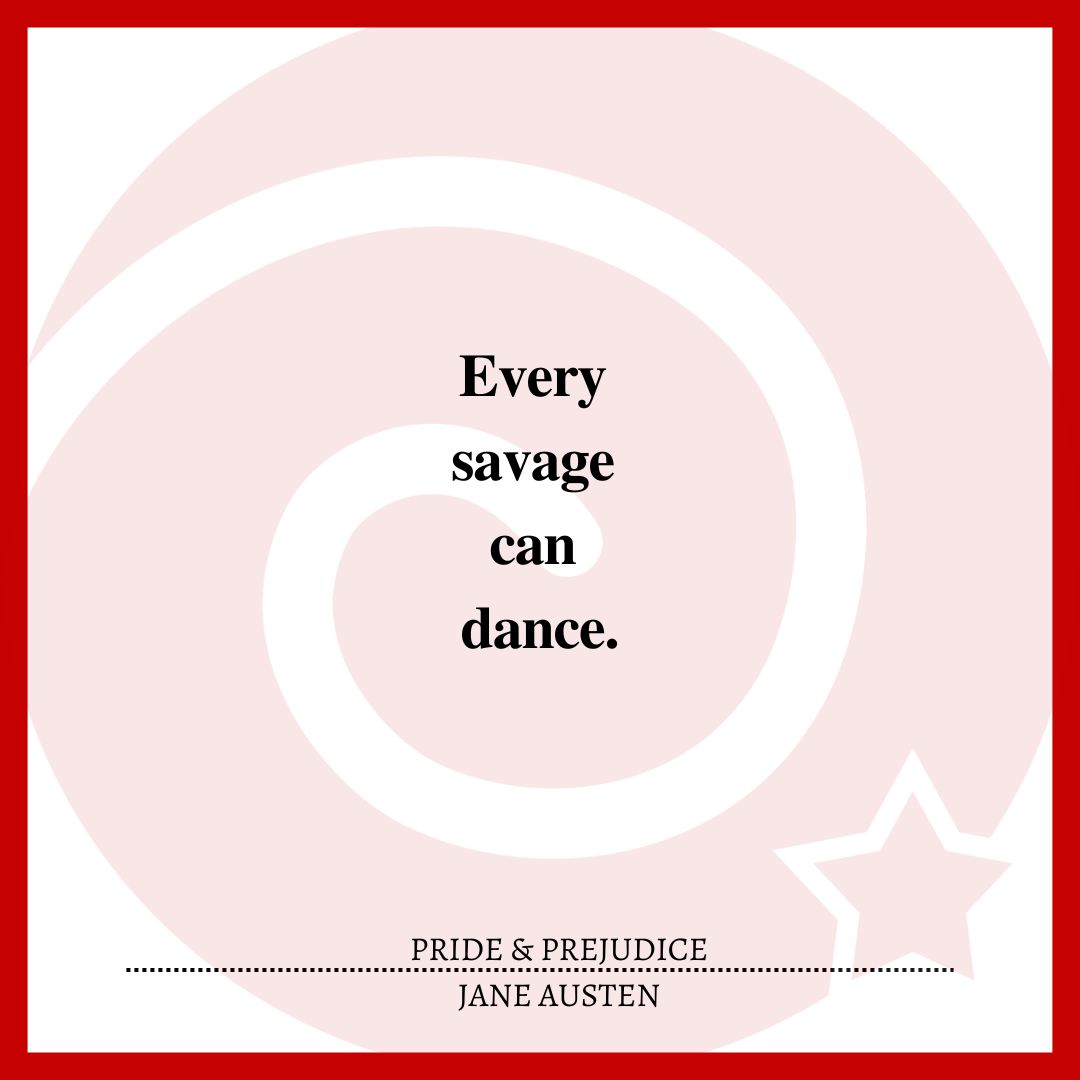
From all that I can collect by your manner of talking, you must be two of the silliest girls in the country. I have suspected it some time, but I am now convinced.
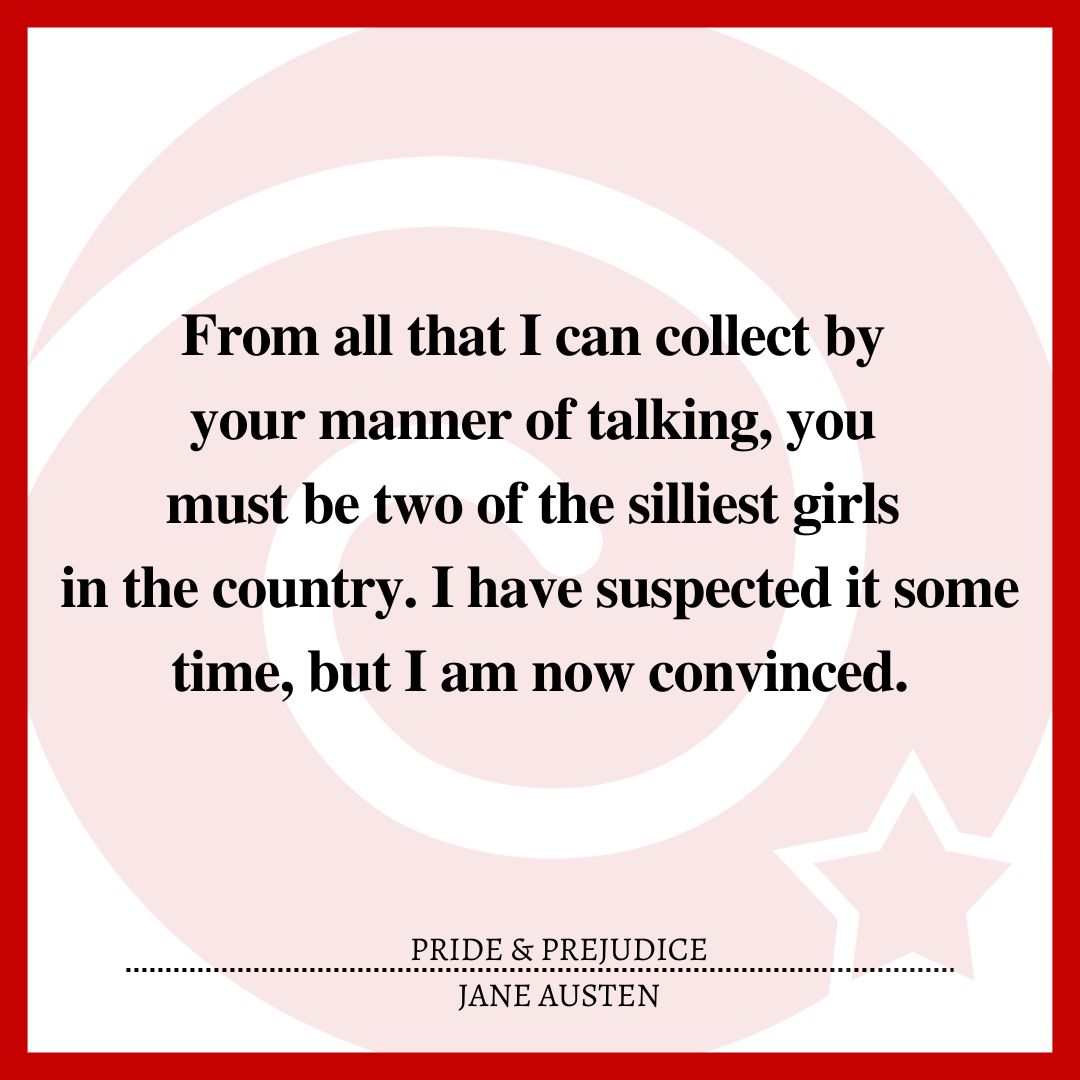
“If my children are silly, I must hope to be always sensible of it.”
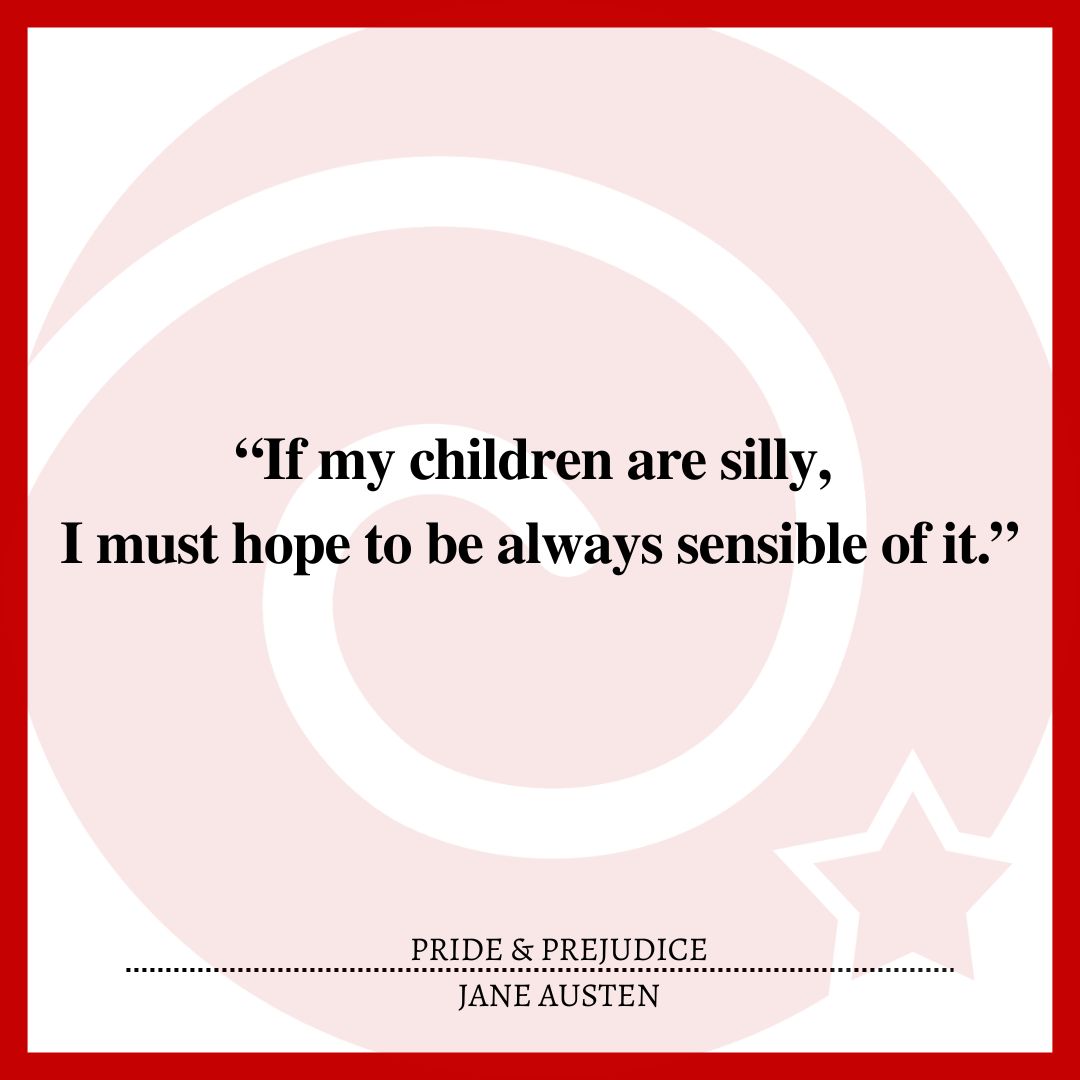
She is a great reader, and has no pleasure in anything else.
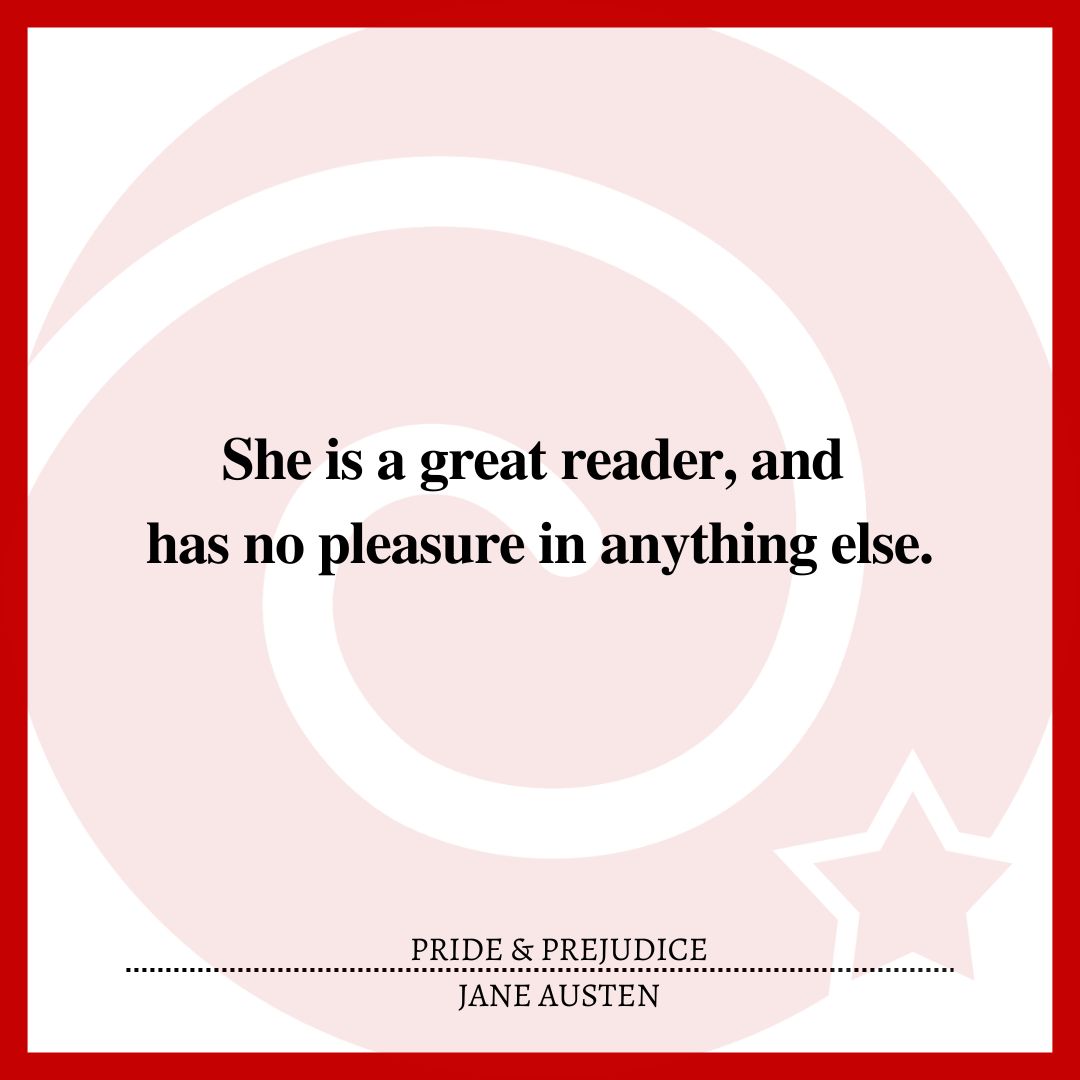
A woman must have a thorough knowledge of music, singing, drawing, dancing, and the modern languages, to deserve the word; and besides all this, she must possess a certain something in her air and manner of walking, the tone of her voice, her address and expressions, or the word will be but half-deserved.
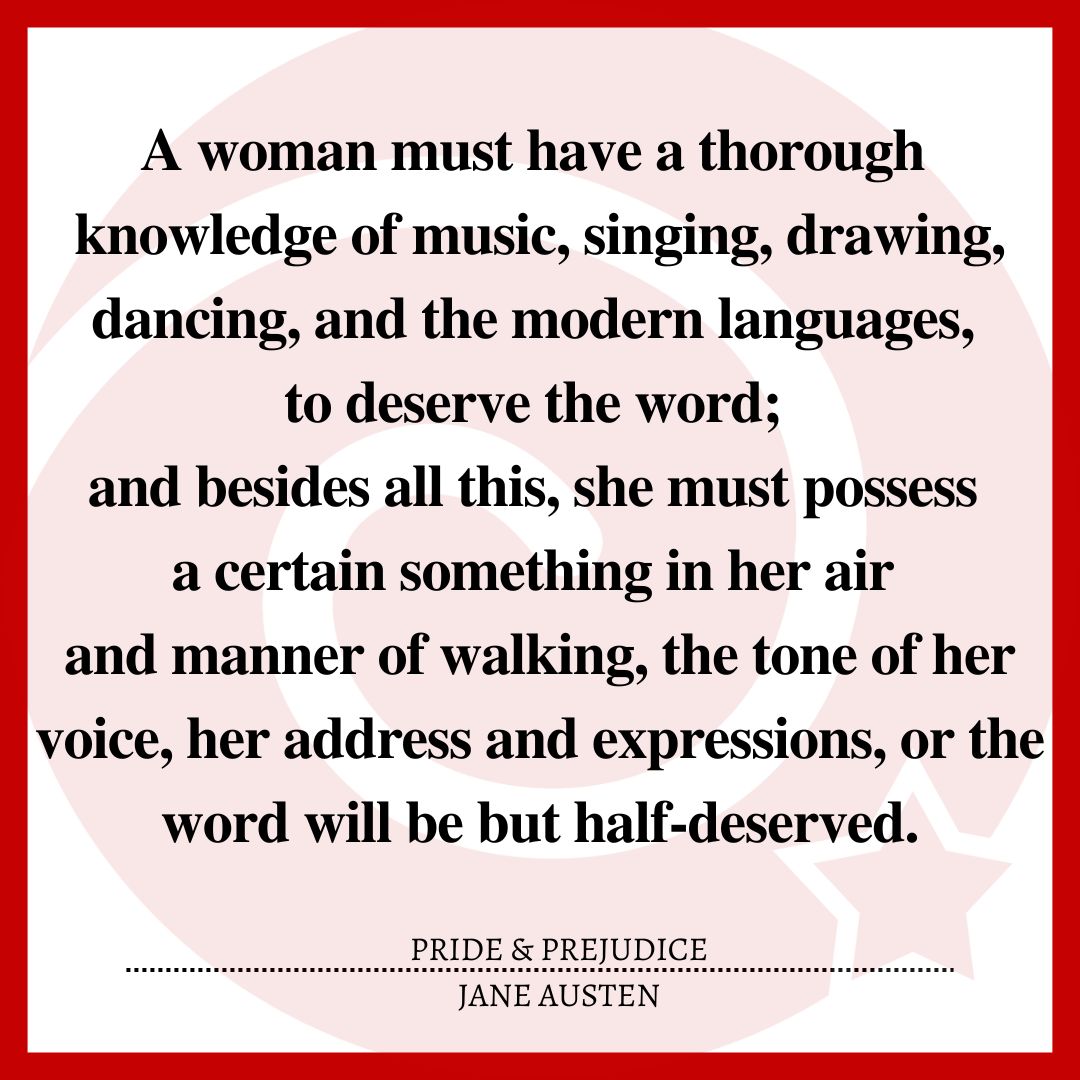
“Oh! yes – I understand you perfectly.” “I wish I might take this for a compliment; but to be so easily seen through I am afraid is pitiful.”
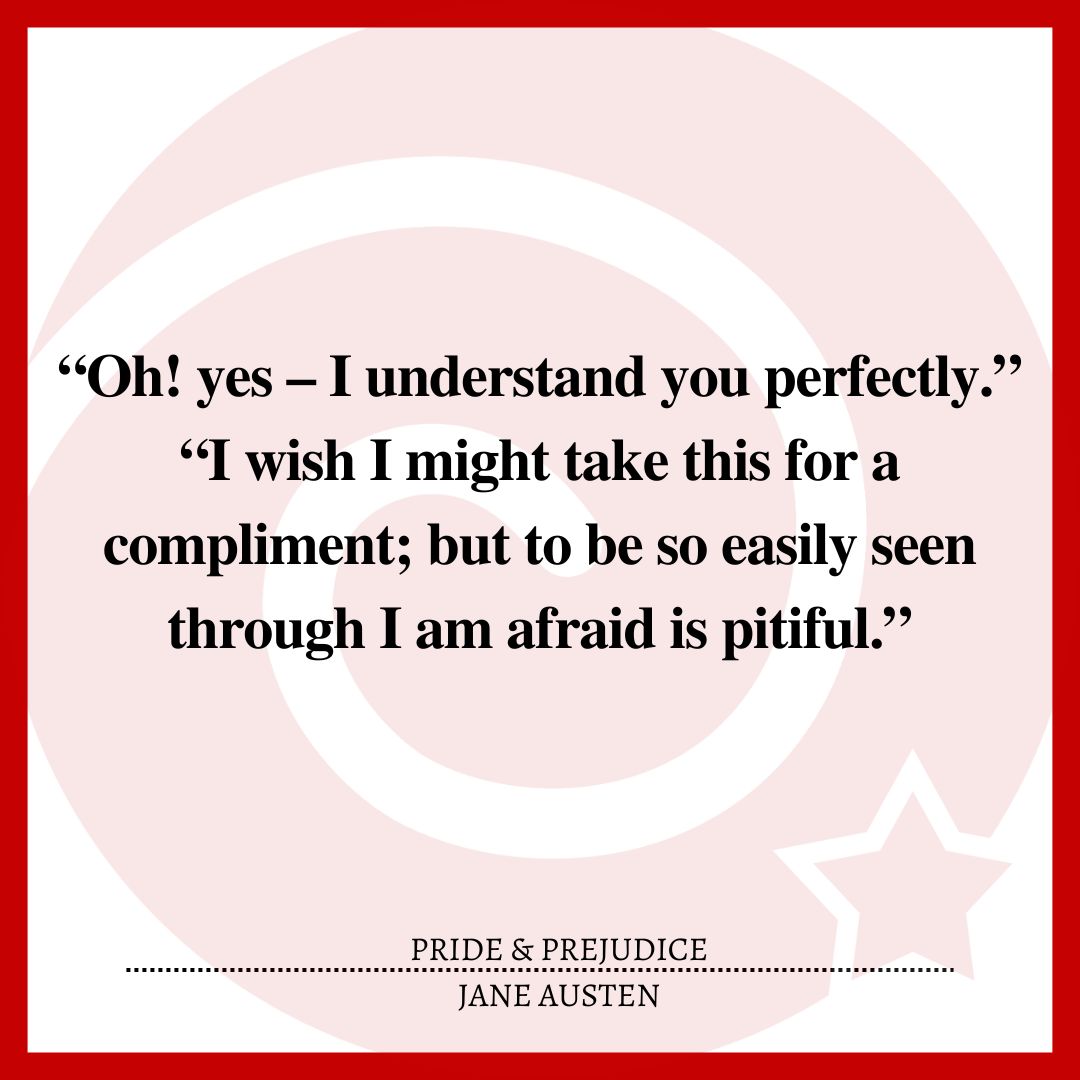
“I have been used to consider poetry as the food of love,” said Darcy.
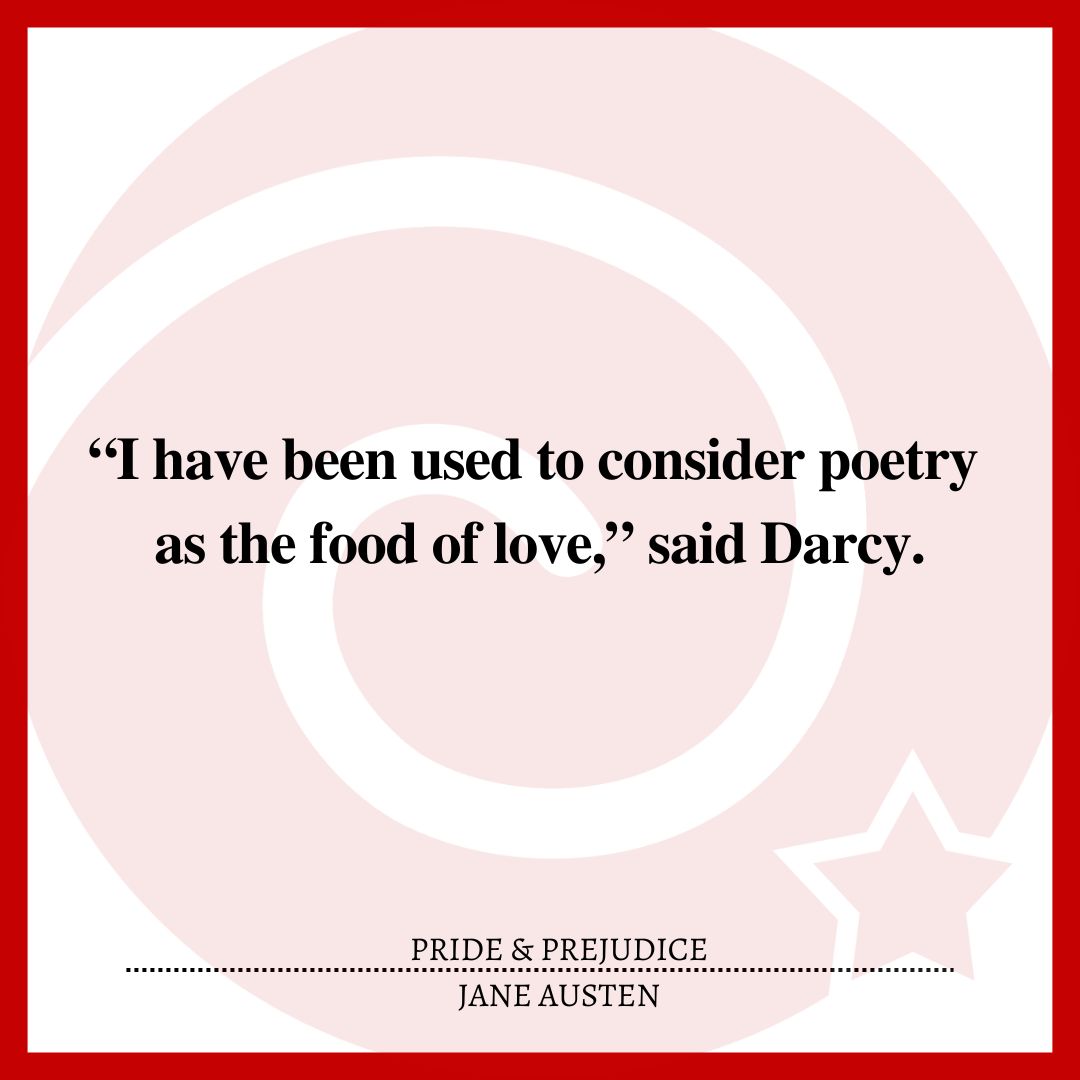
“It is a rule with me, that a person who can write a long letter with ease, cannot write ill.”
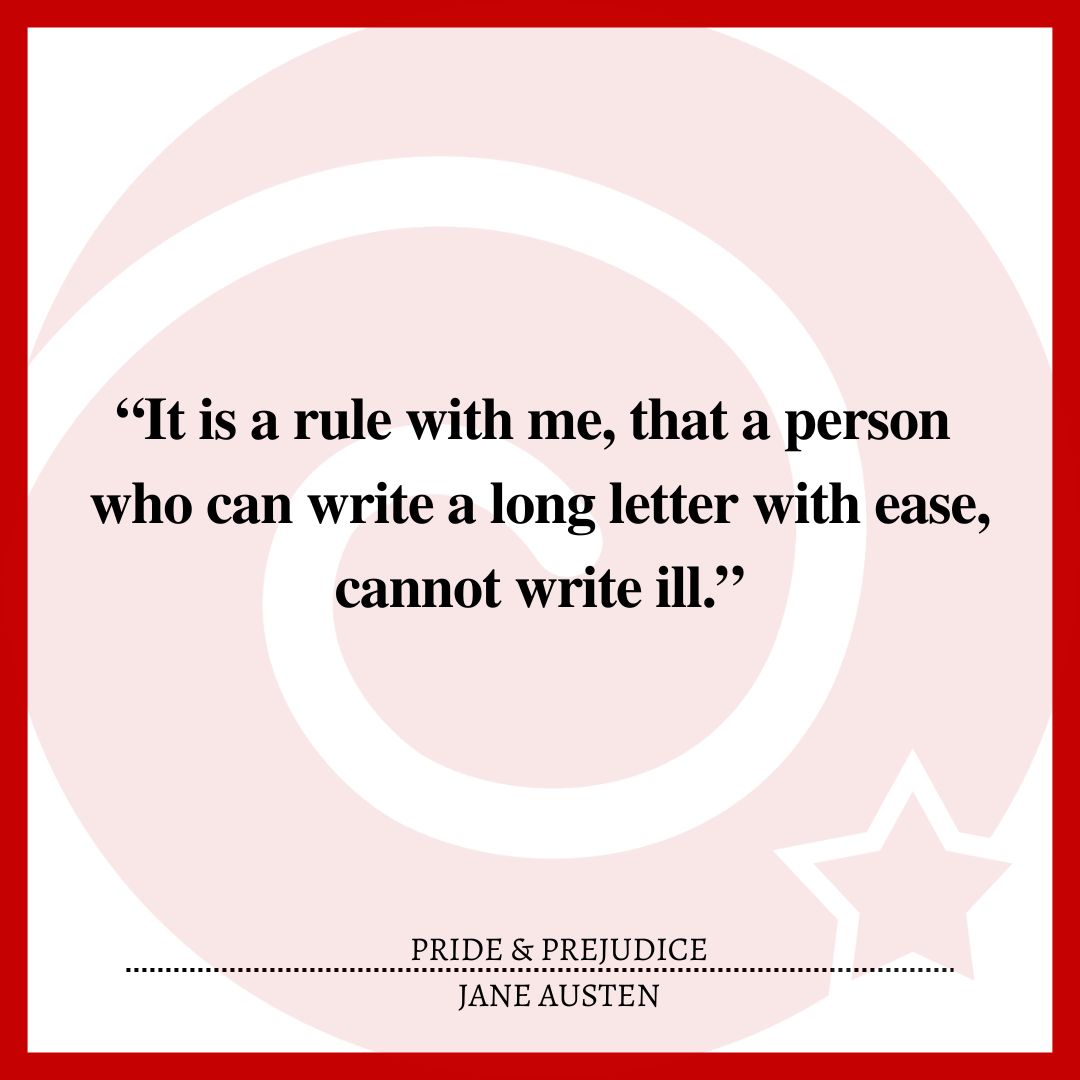
“Nothing is more deceitful,” said Darcy, “than the appearance of humility. It is often only carelessness of opinion, and sometimes an indirect boast.”
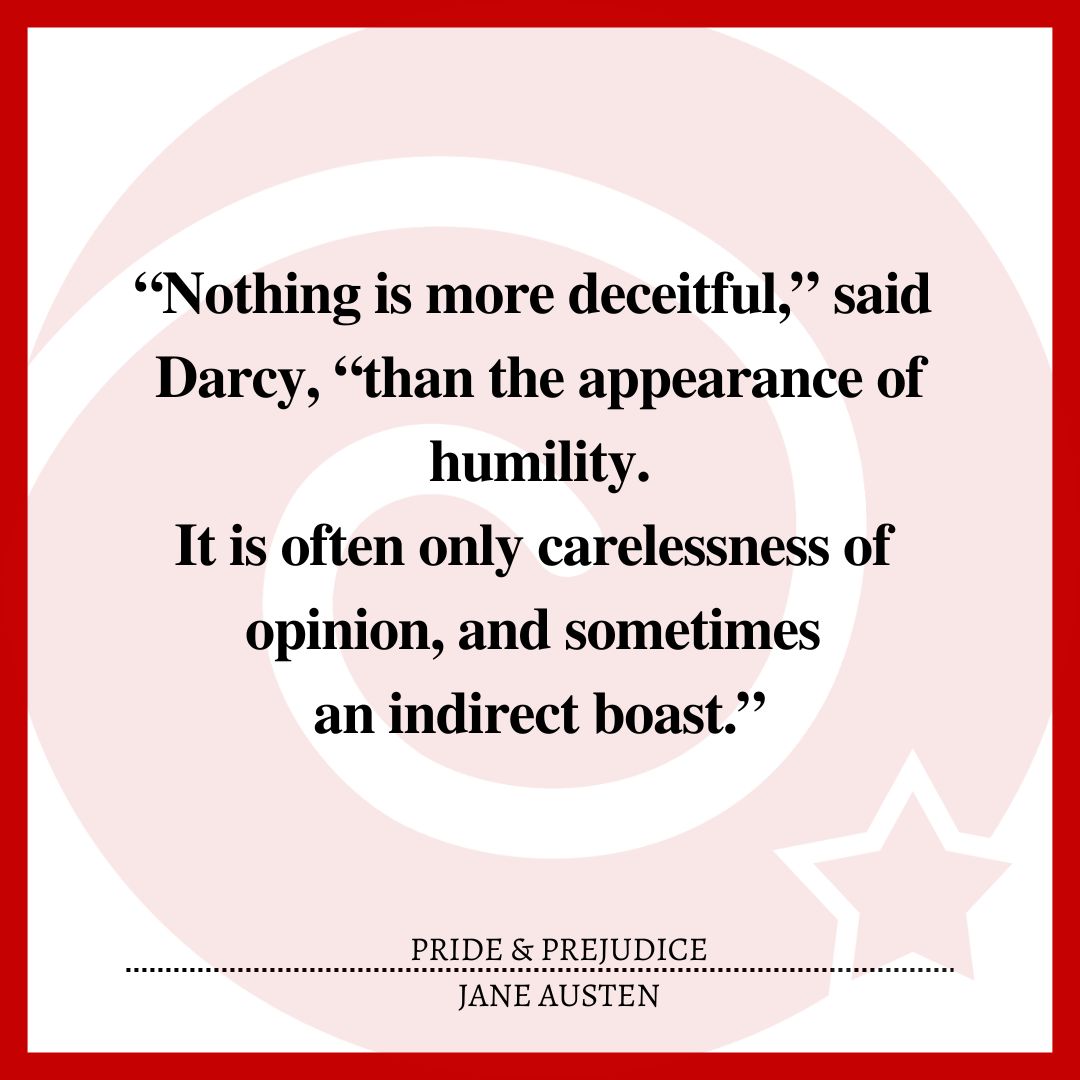
“Nay,” cried Bingley, “this is too much, to remember at night all the foolish things that were said in the morning.”
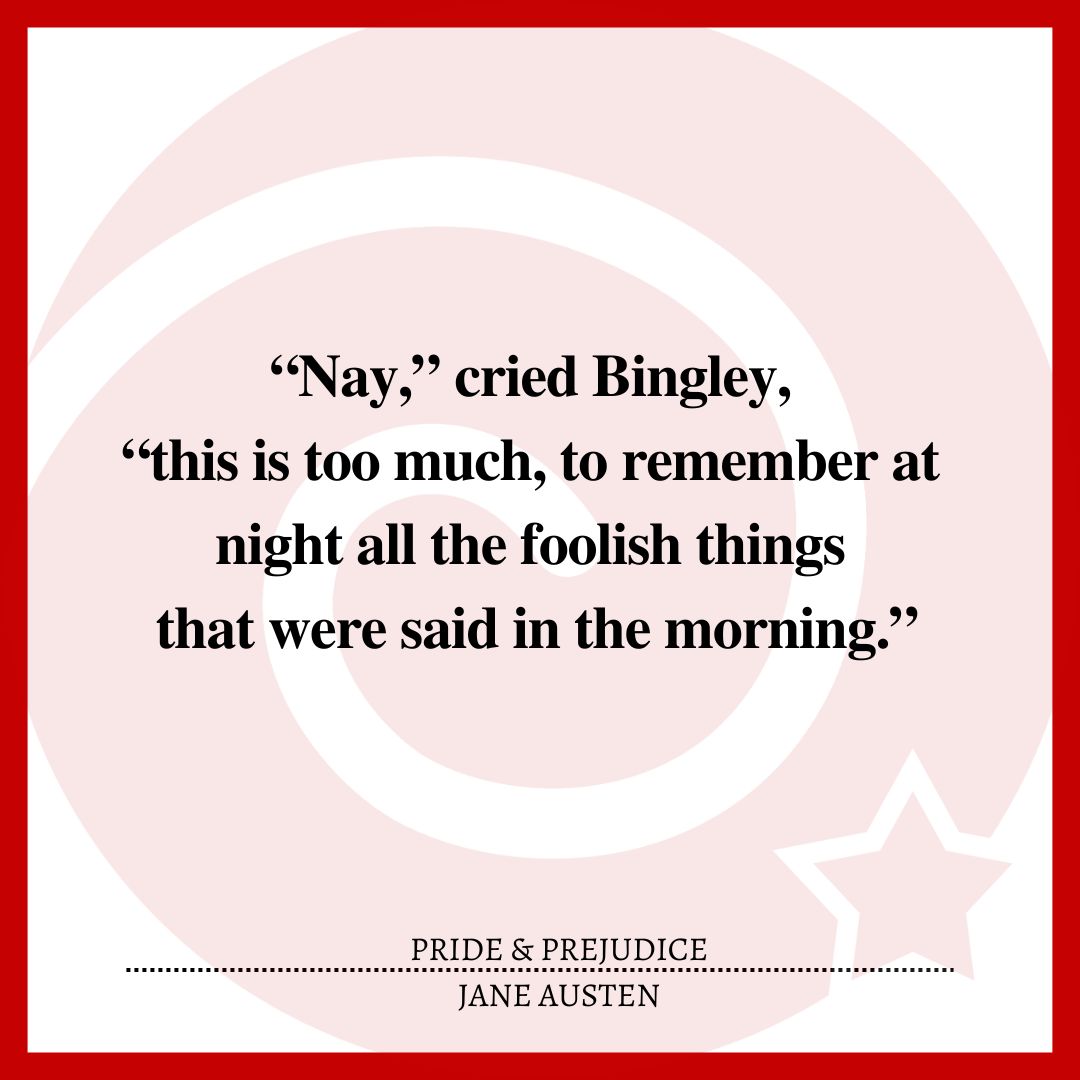
You expect me to account for opinions which you choose to call mine, but which I have never acknowledged.
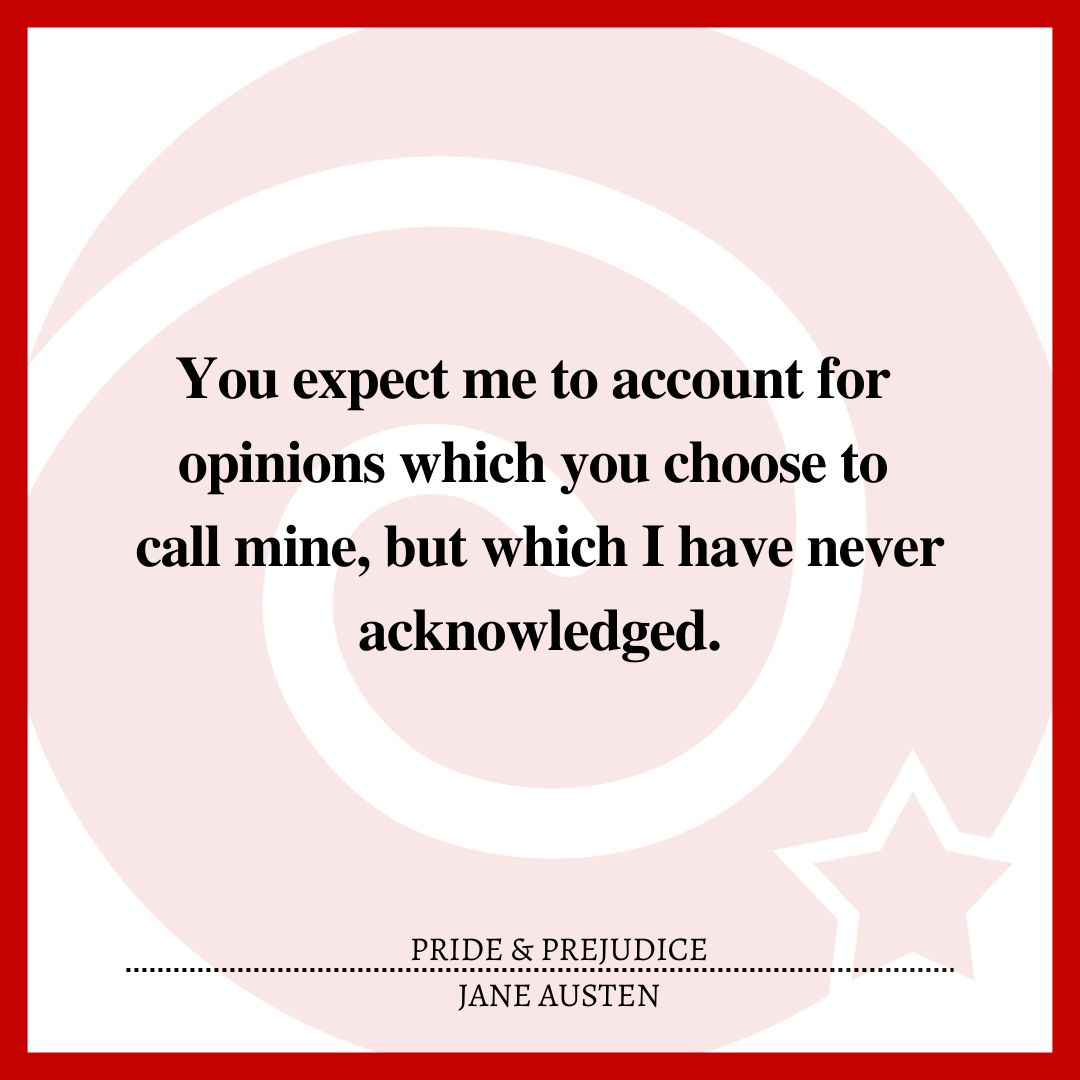
“I see your design, Bingley,” said his friend. “You dislike an argument, and want to silence this.”
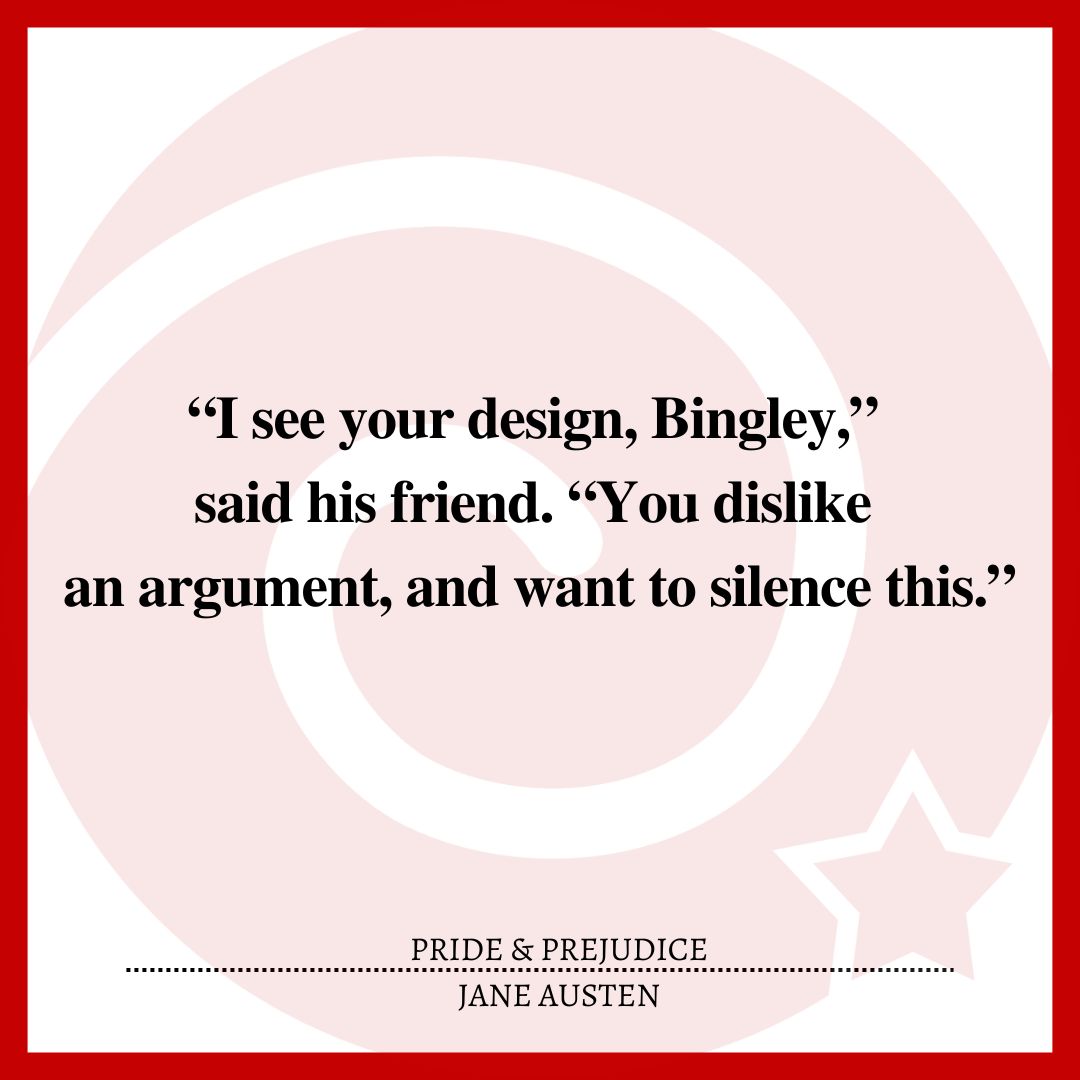
“… and now despise me if you dare.” “Indeed I do not dare.”
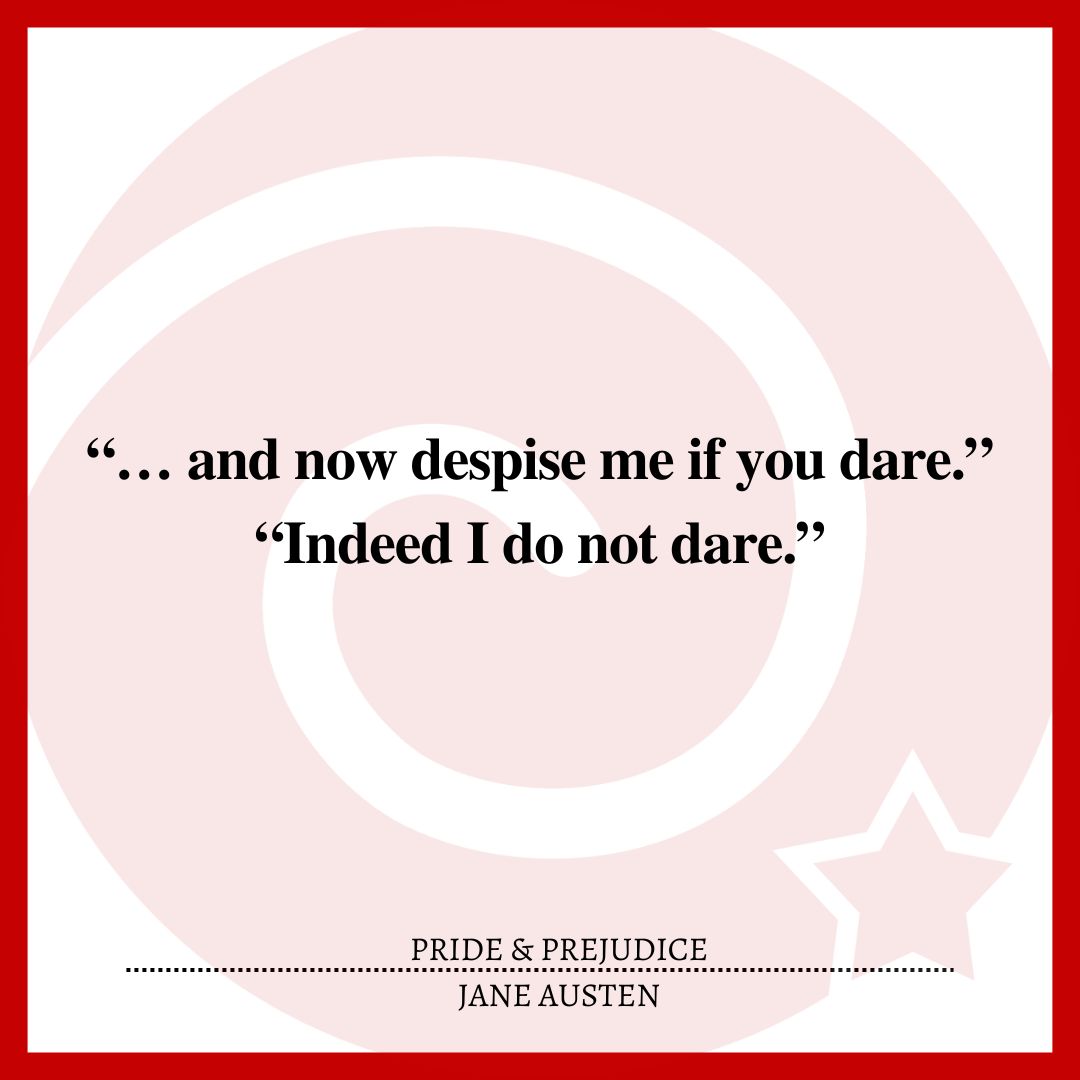
Darcy had never been so bewitched by any woman as he was by her. He really believed, that were it not for the inferiority of her connections, he should be in some danger.
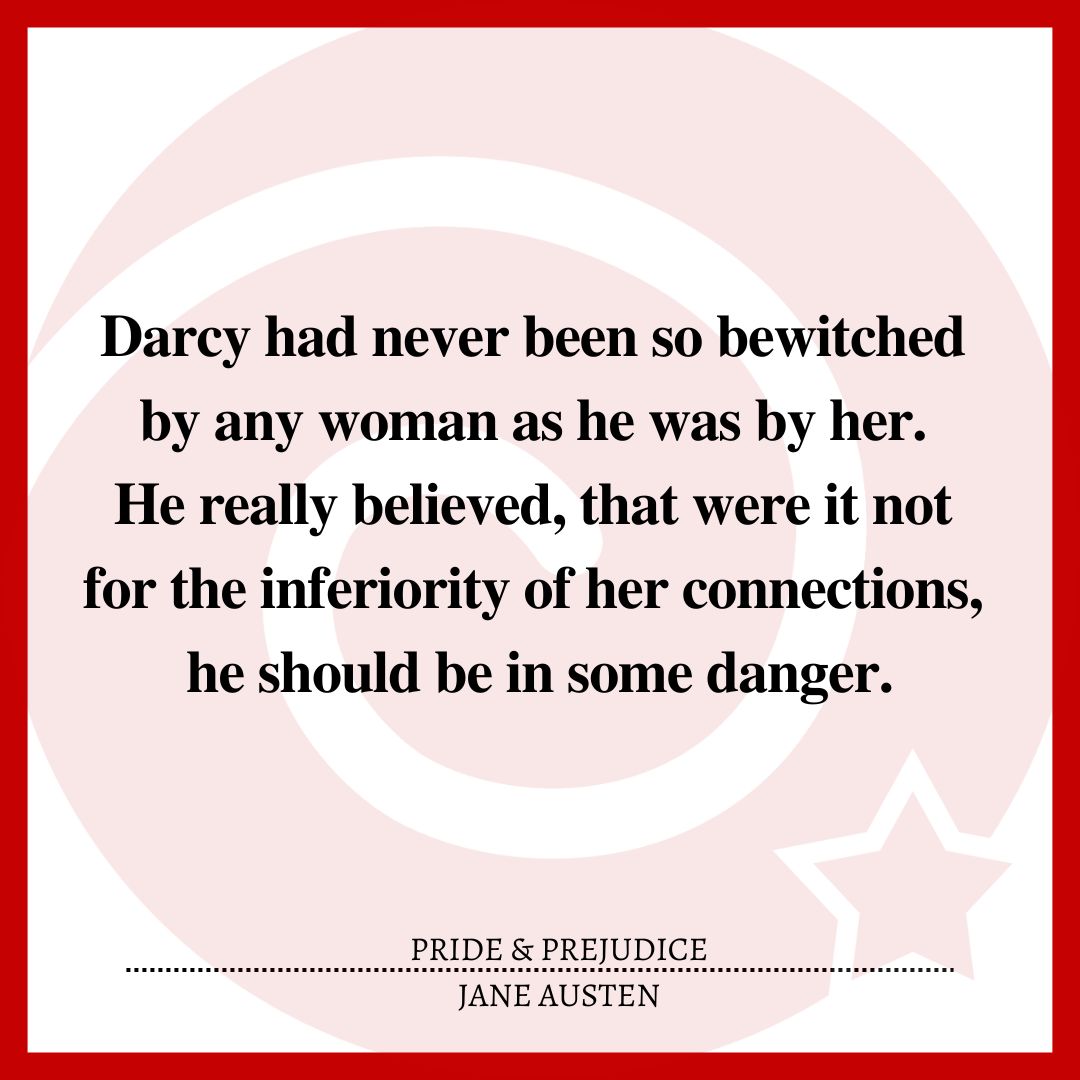
When I have a house of my own, I shall be miserable if I have not an excellent library.
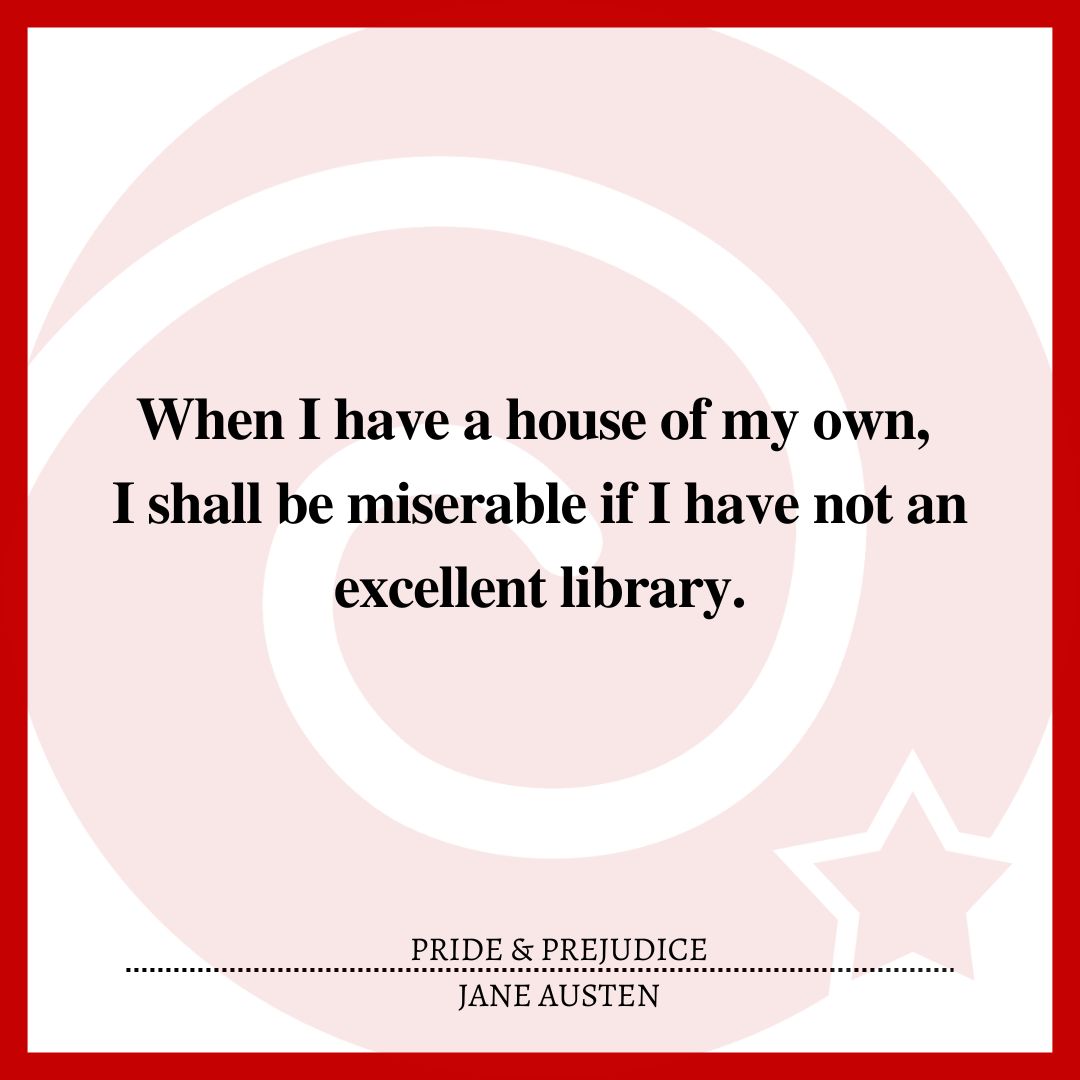
I have faults enough, but they are not, I hope, of understanding.
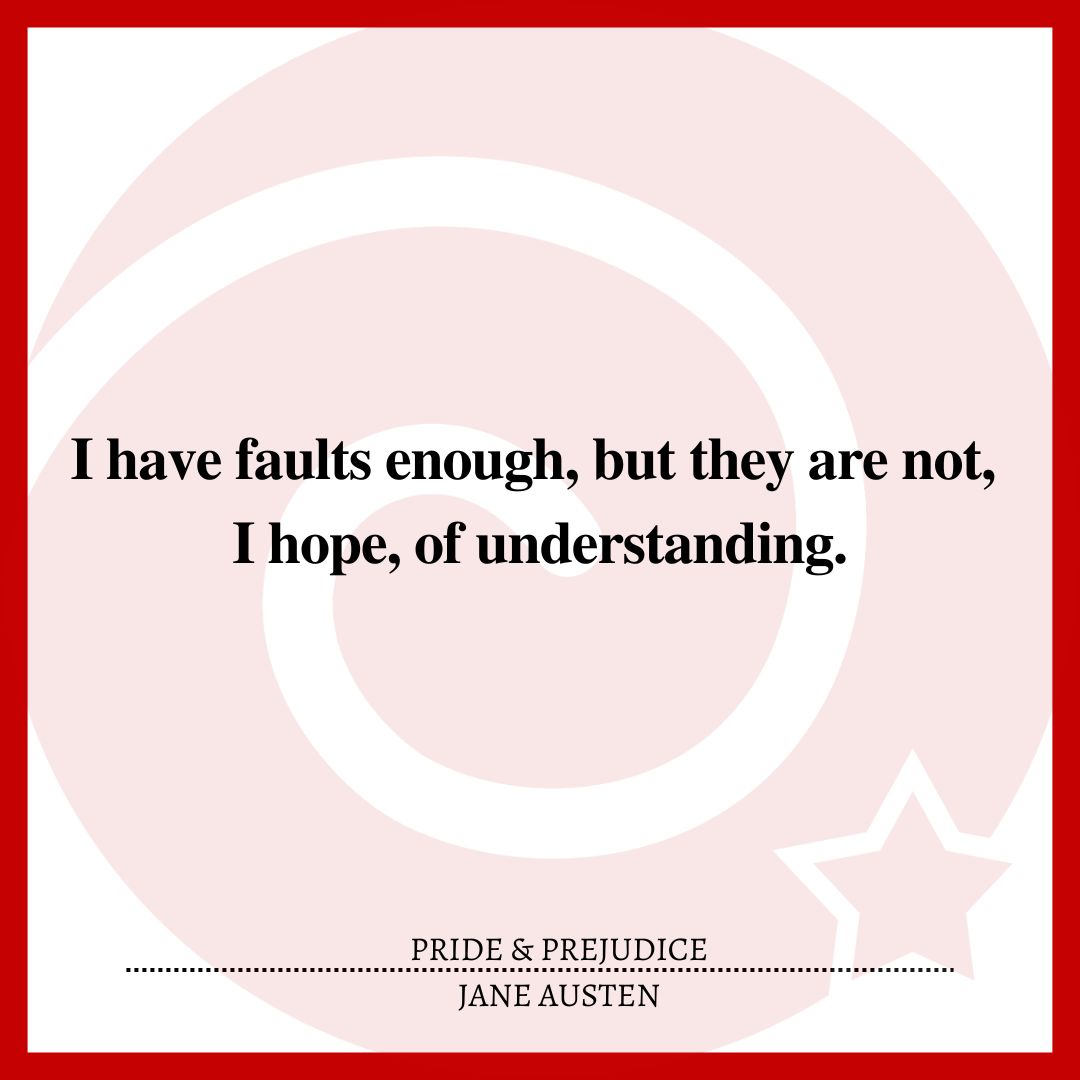
My good opinion once lost, is lost forever.
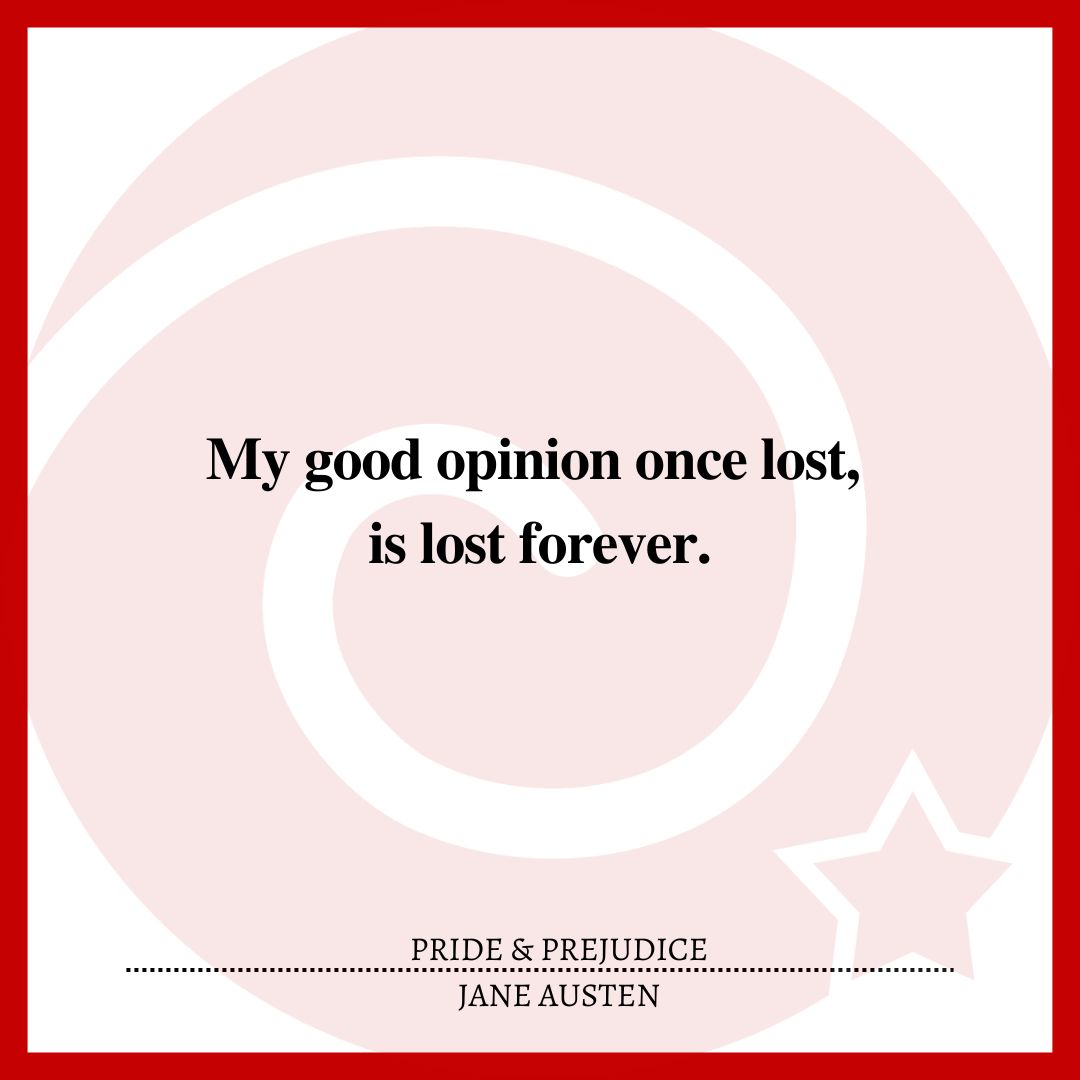
“And your defect is to hate everybody.” “And yours,” he replied with a smile, “is wilfully to misunderstand them.”
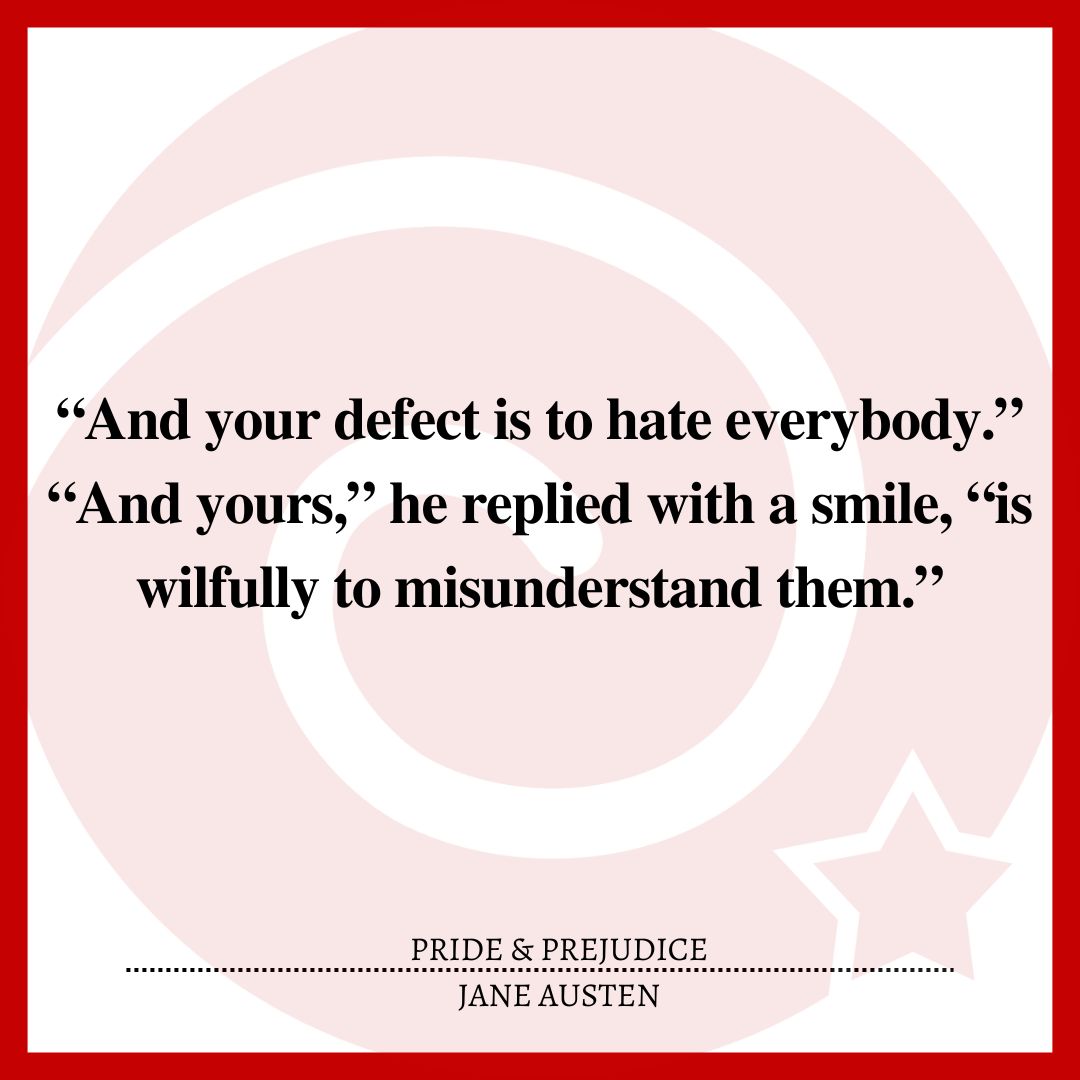
“Heaven forbid! – That would be the greatest misfortune of all! – To find a man agreeable whom one is determined to hate! Do not wish me such an evil.”
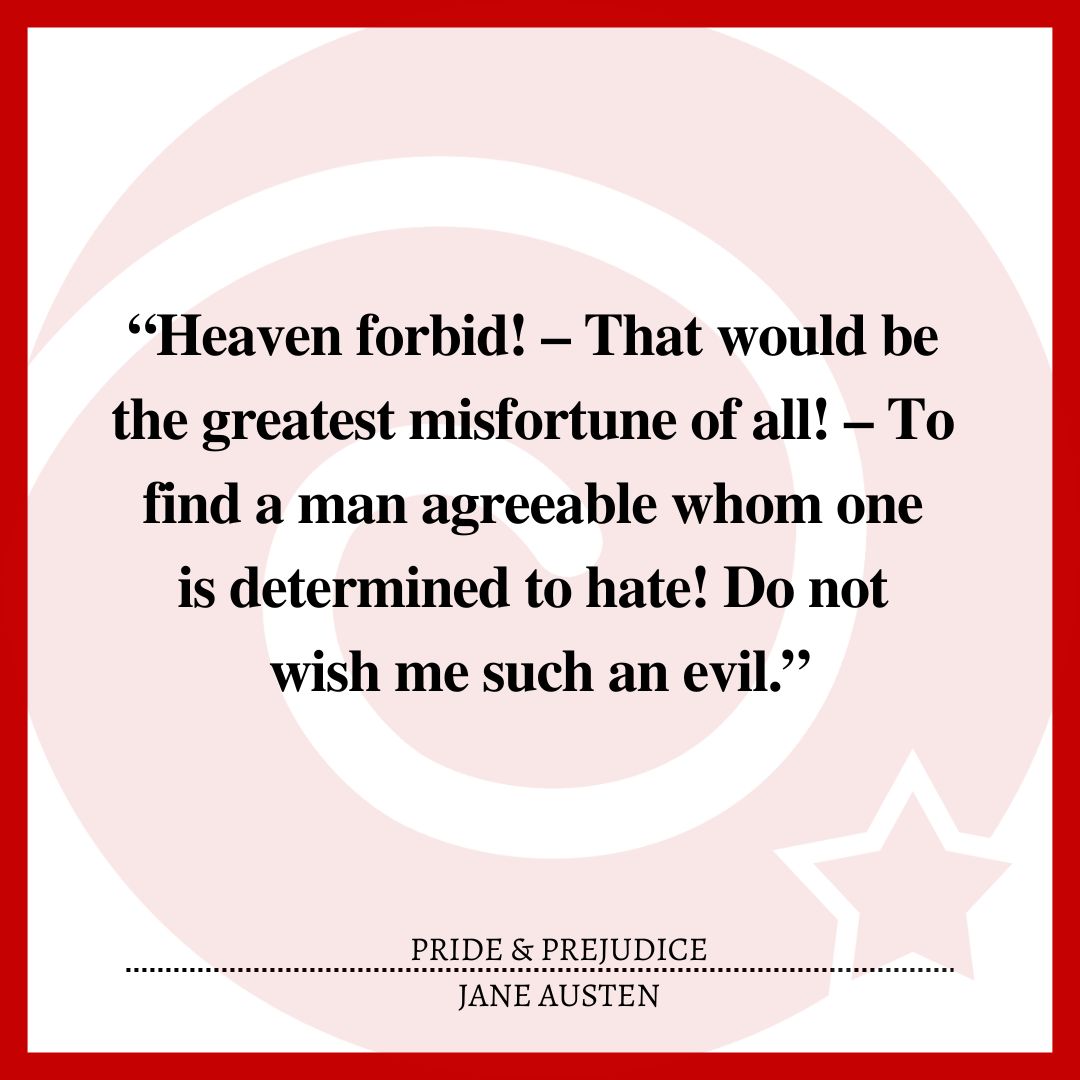
Those who do not complain are never pitied.
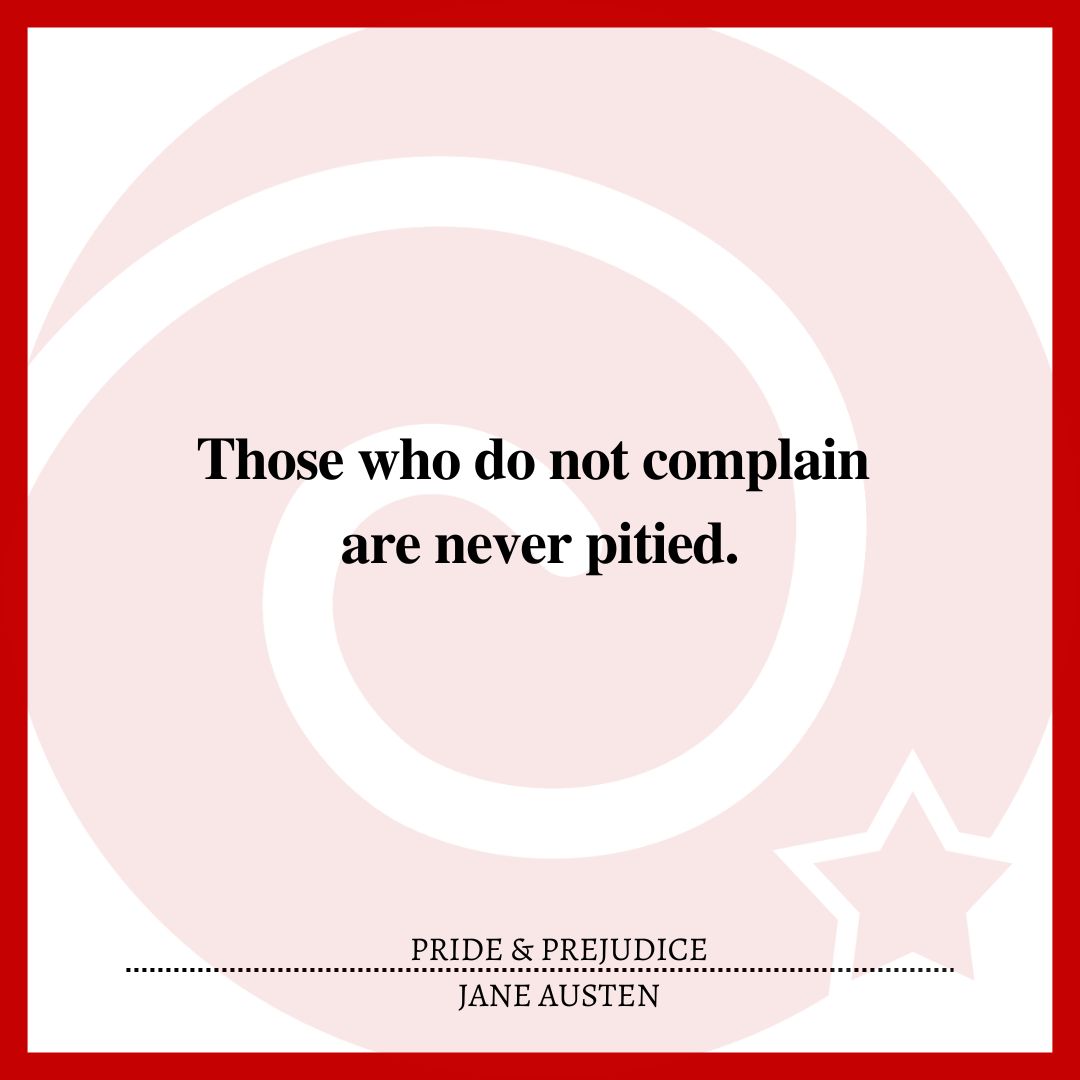
There are few people whom I really love, and still fewer of whom I think well. The more I see of the world, the more I am dissatisfied with it; and every day confirms my belief of the inconsistency of all human characters, and of the little dependence that can be placed on the appearance of merit or sense.
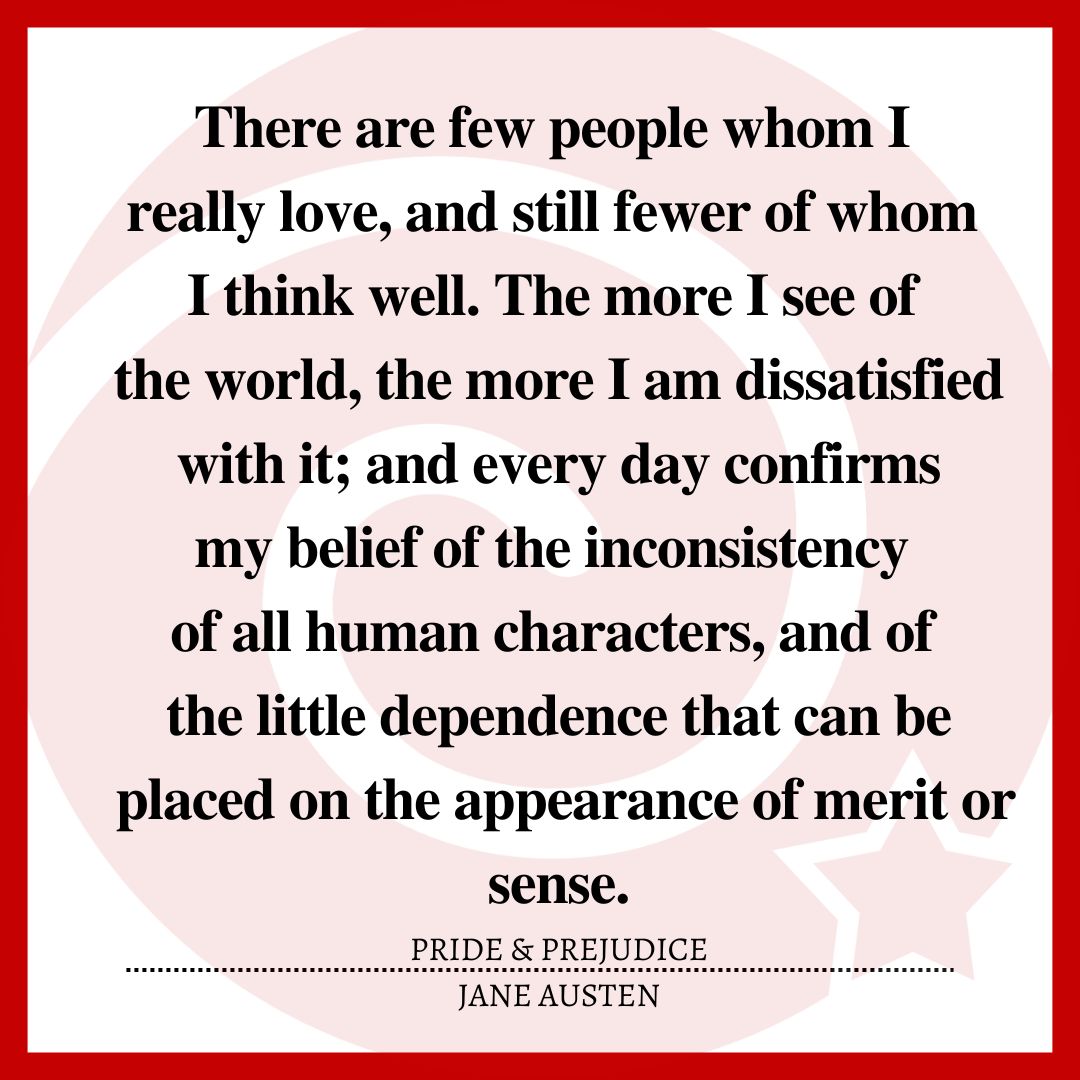
“Women fancy admiration means more than it does.” “And men take care that they should.”
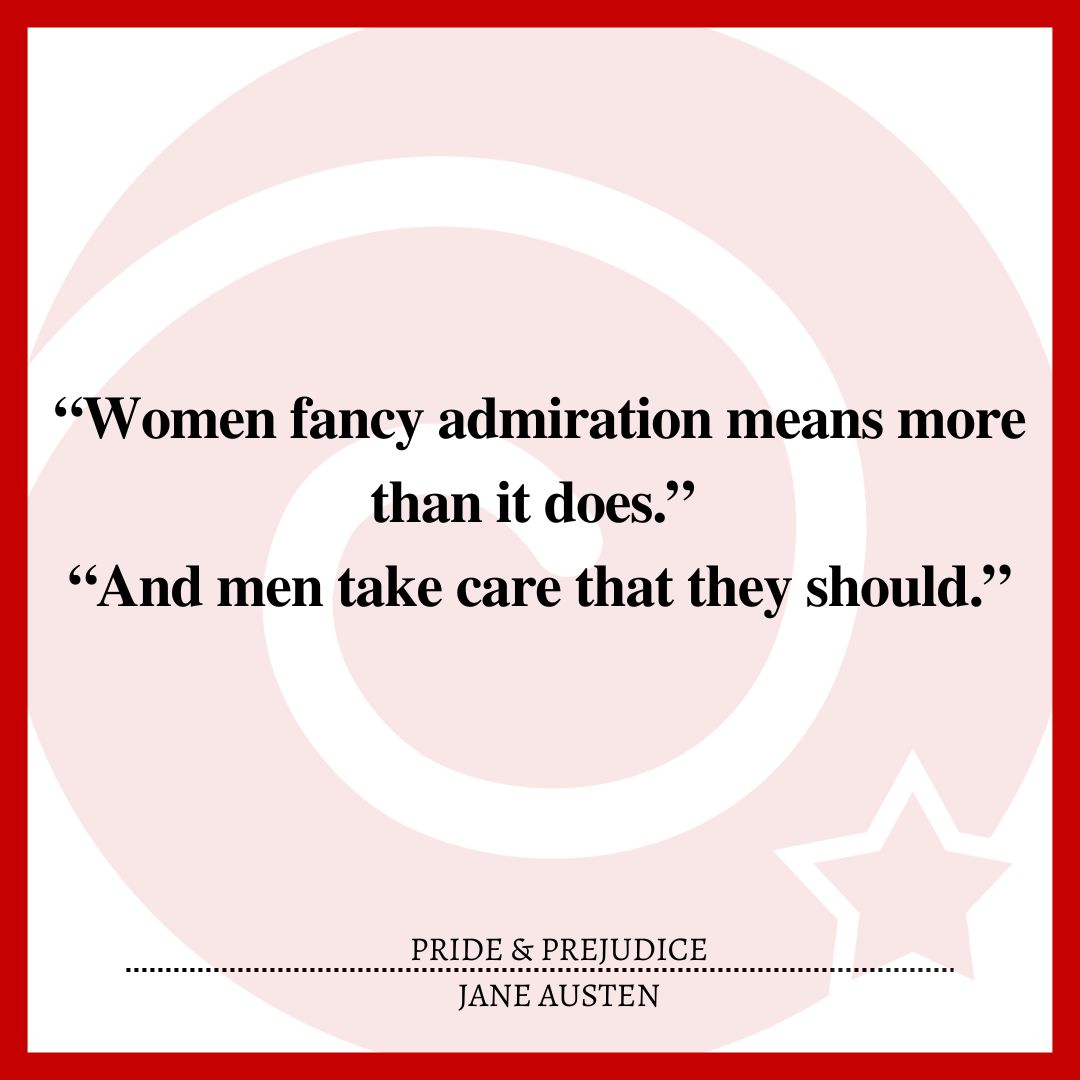
“Is not general incivility the very essence of love?”
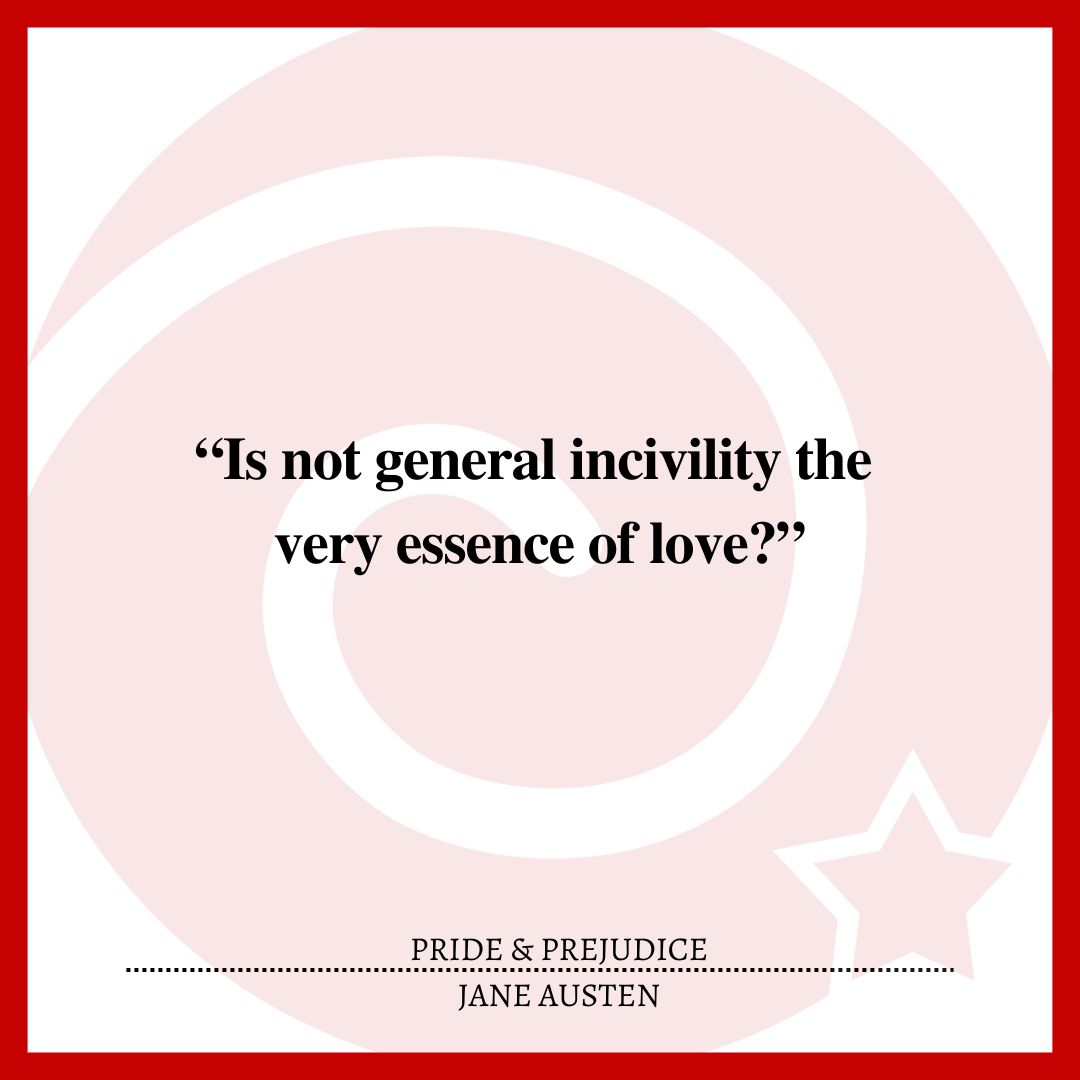
There is a stubbornness about me that never can bear to be frightened at the will of others. My courage always rises at every attempt to intimidate me.
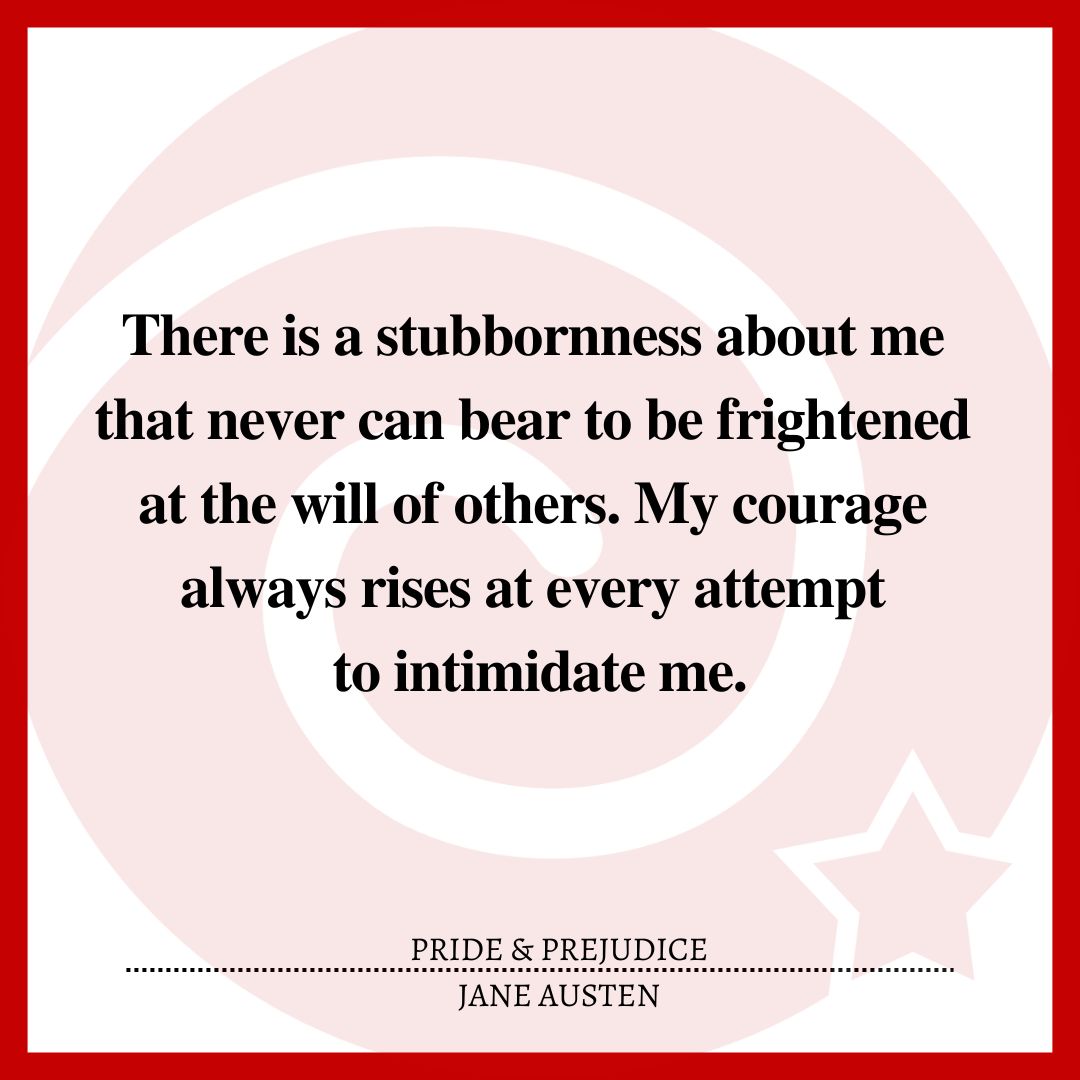
“In vain I have struggled. It will not do. My feelings will not be repressed. You must allow me to tell you how ardently I admire and love you.”
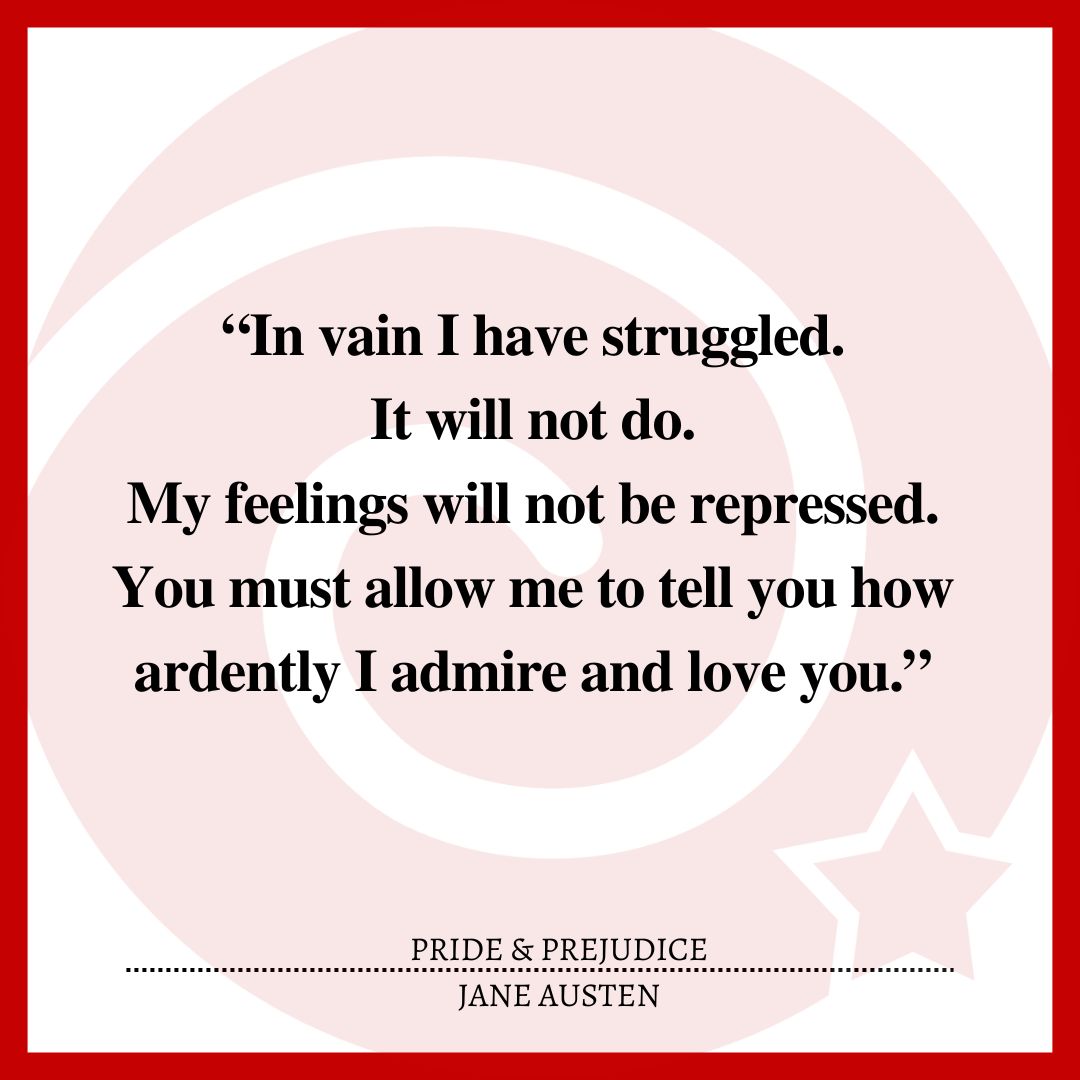
But I confess they would have no charms for me – I should infinitely prefer a book.
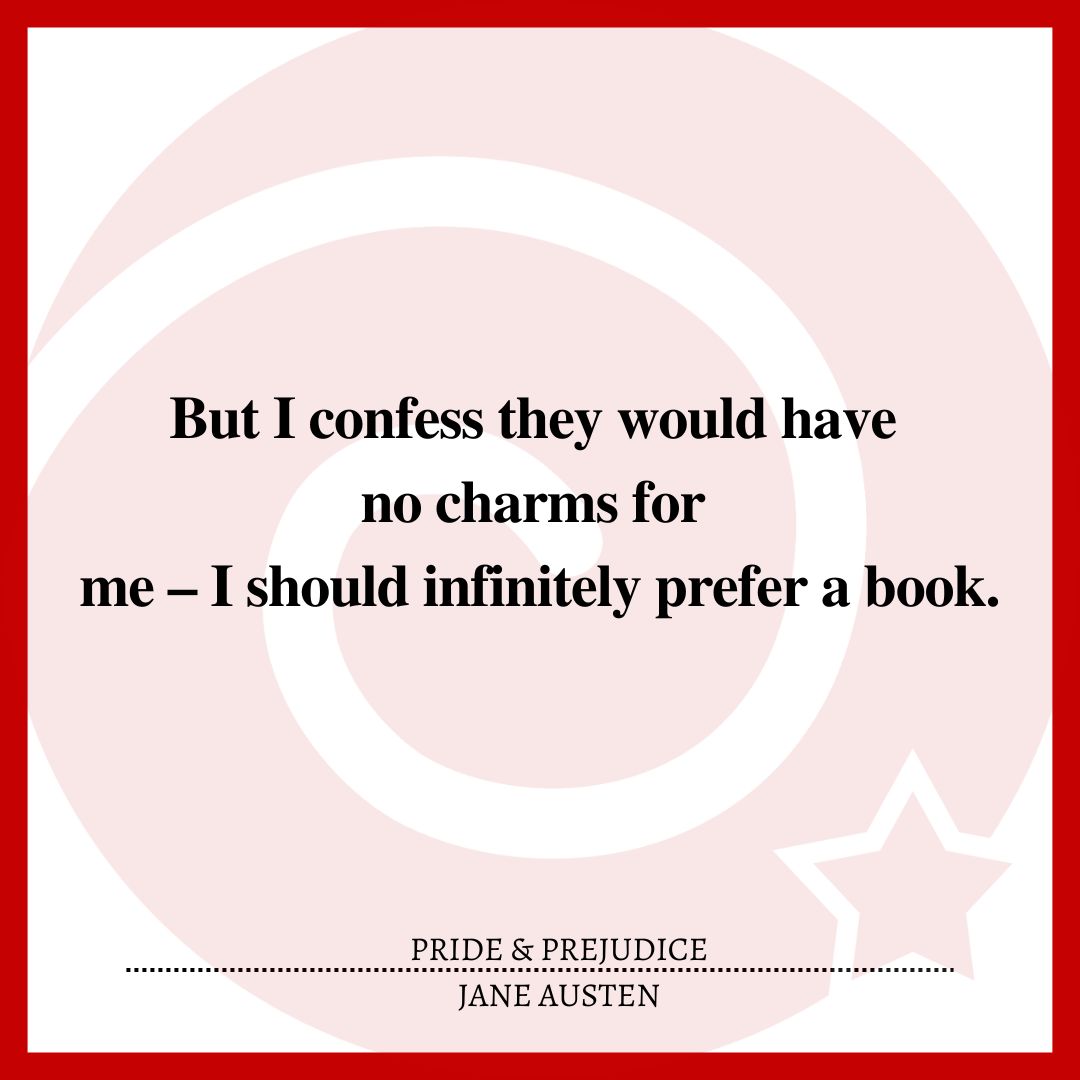
If your feelings are still what they were last April, tell me so at once. My affections and wishes are unchanged, but one word from you will silence me on this subject forever.
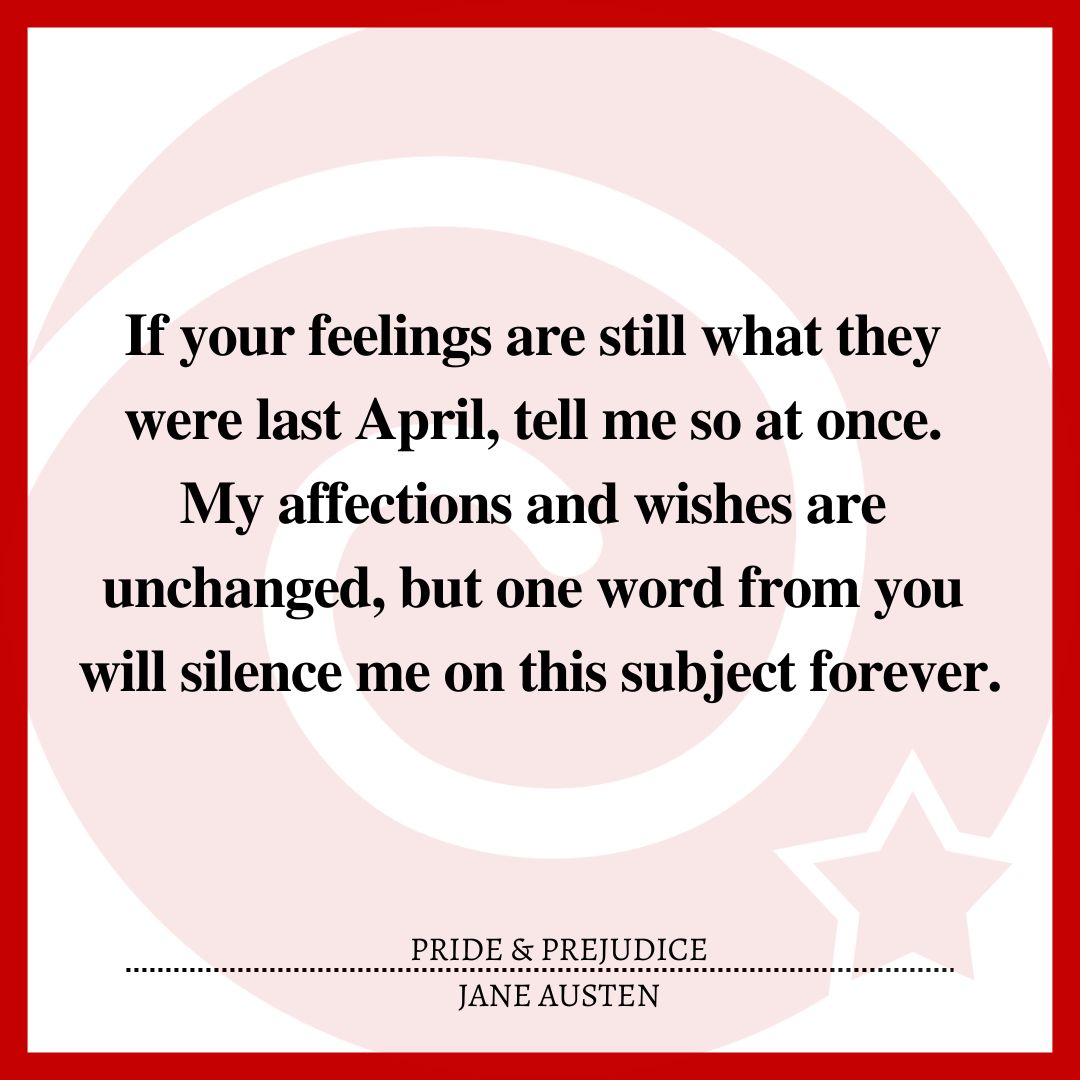
“You might have talked to me more when you came to dinner.” “A man who felt less, might.”
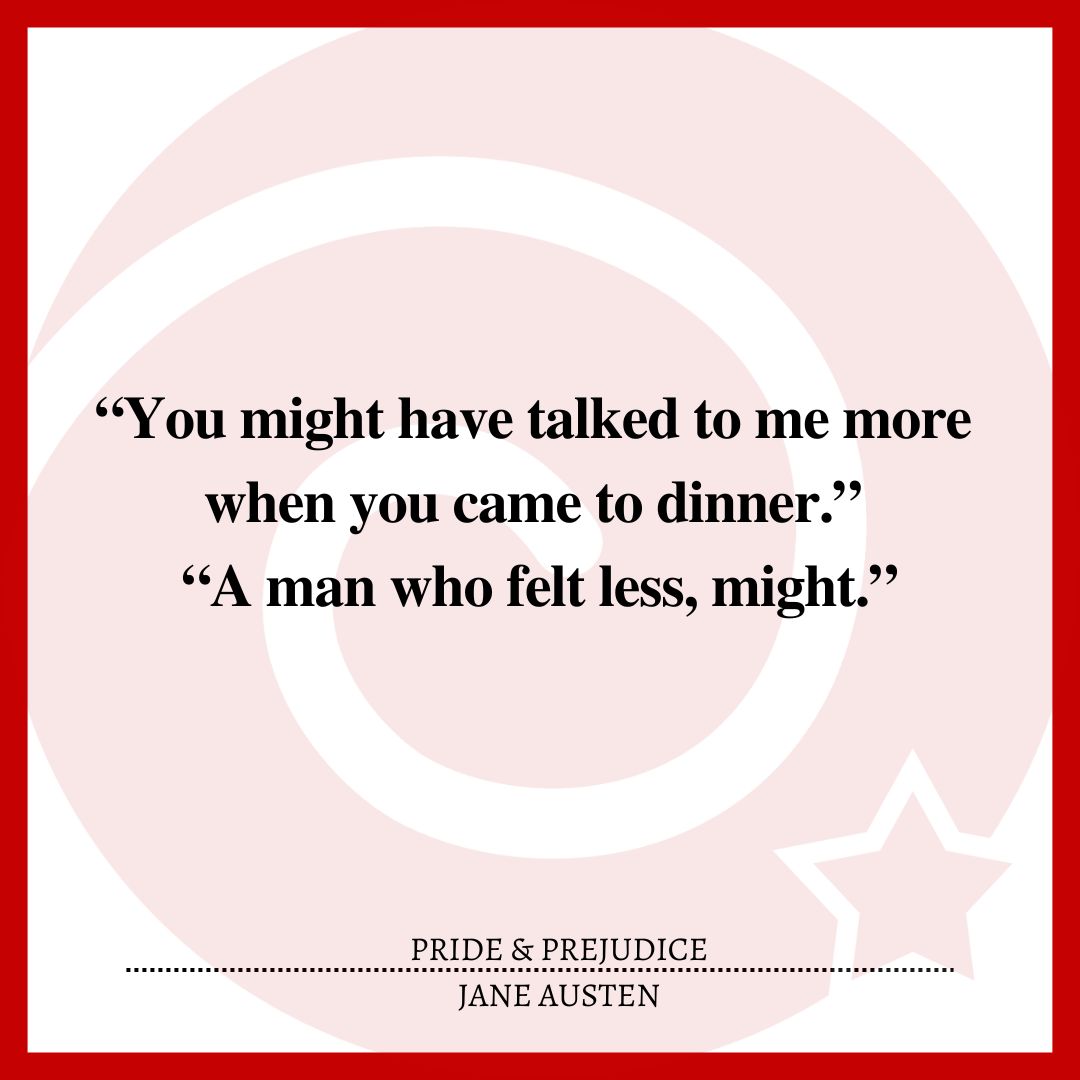
Also Read: Author Spotlight: Must Read F. Scott Fitzgerald Books

